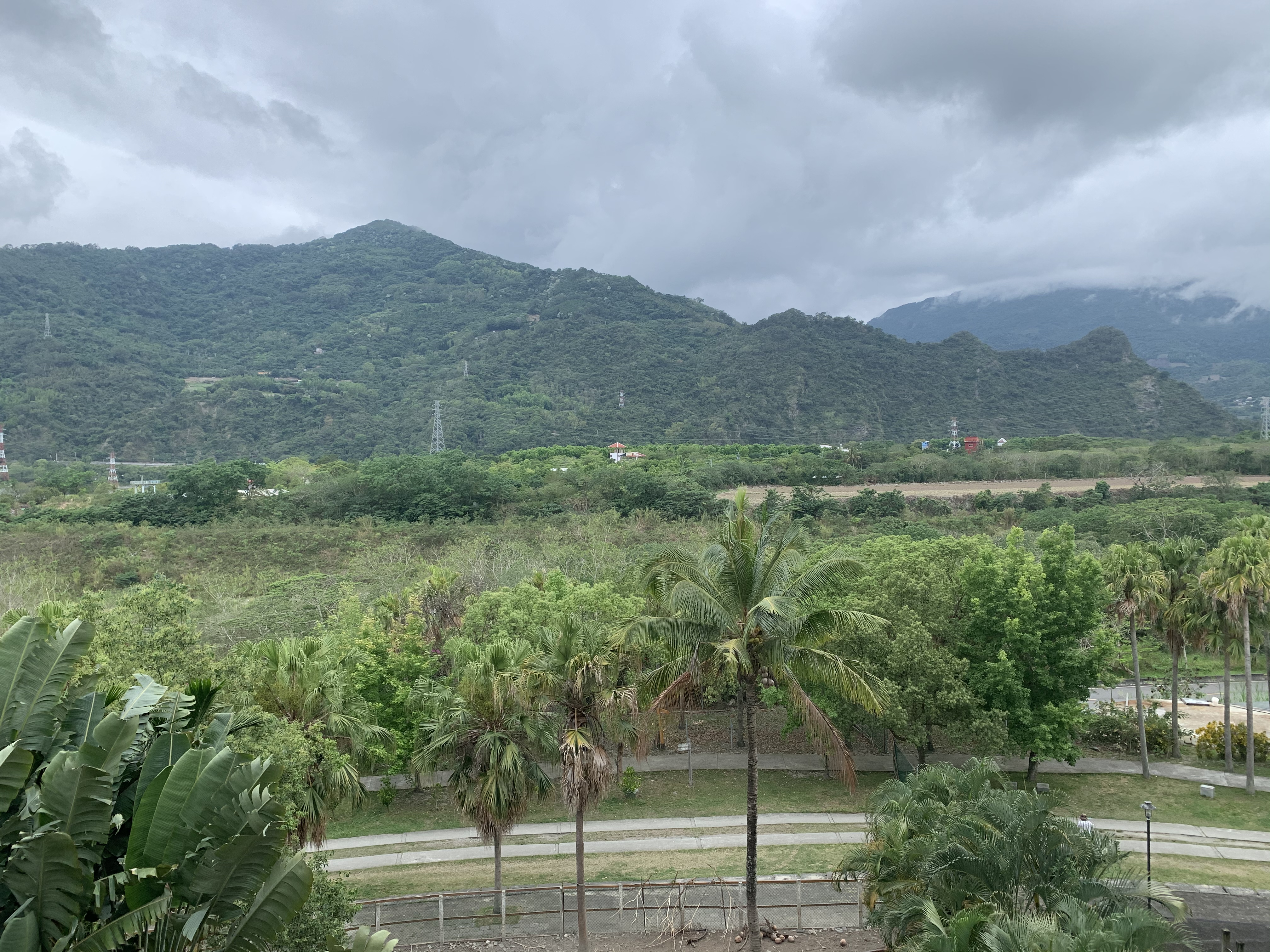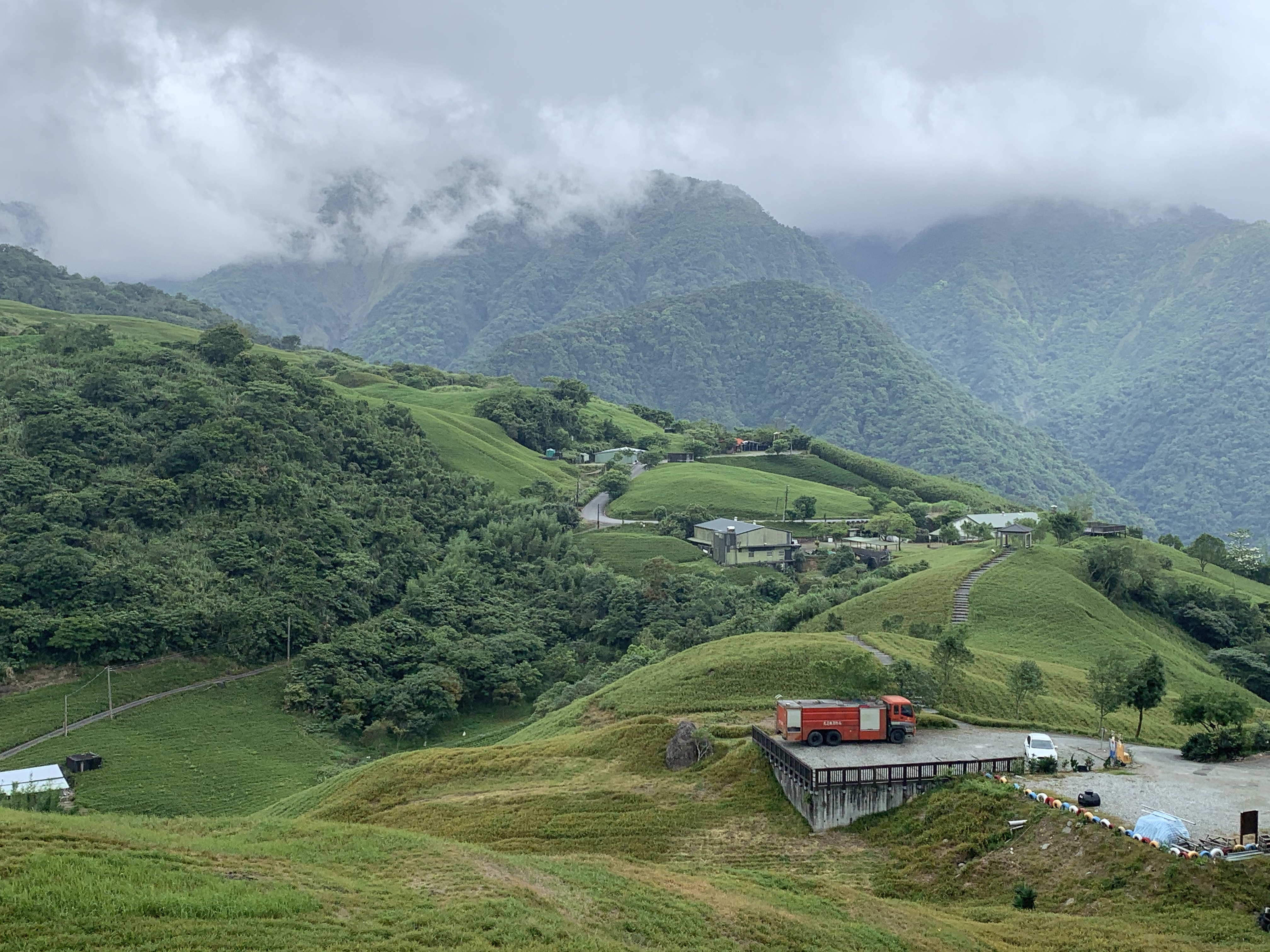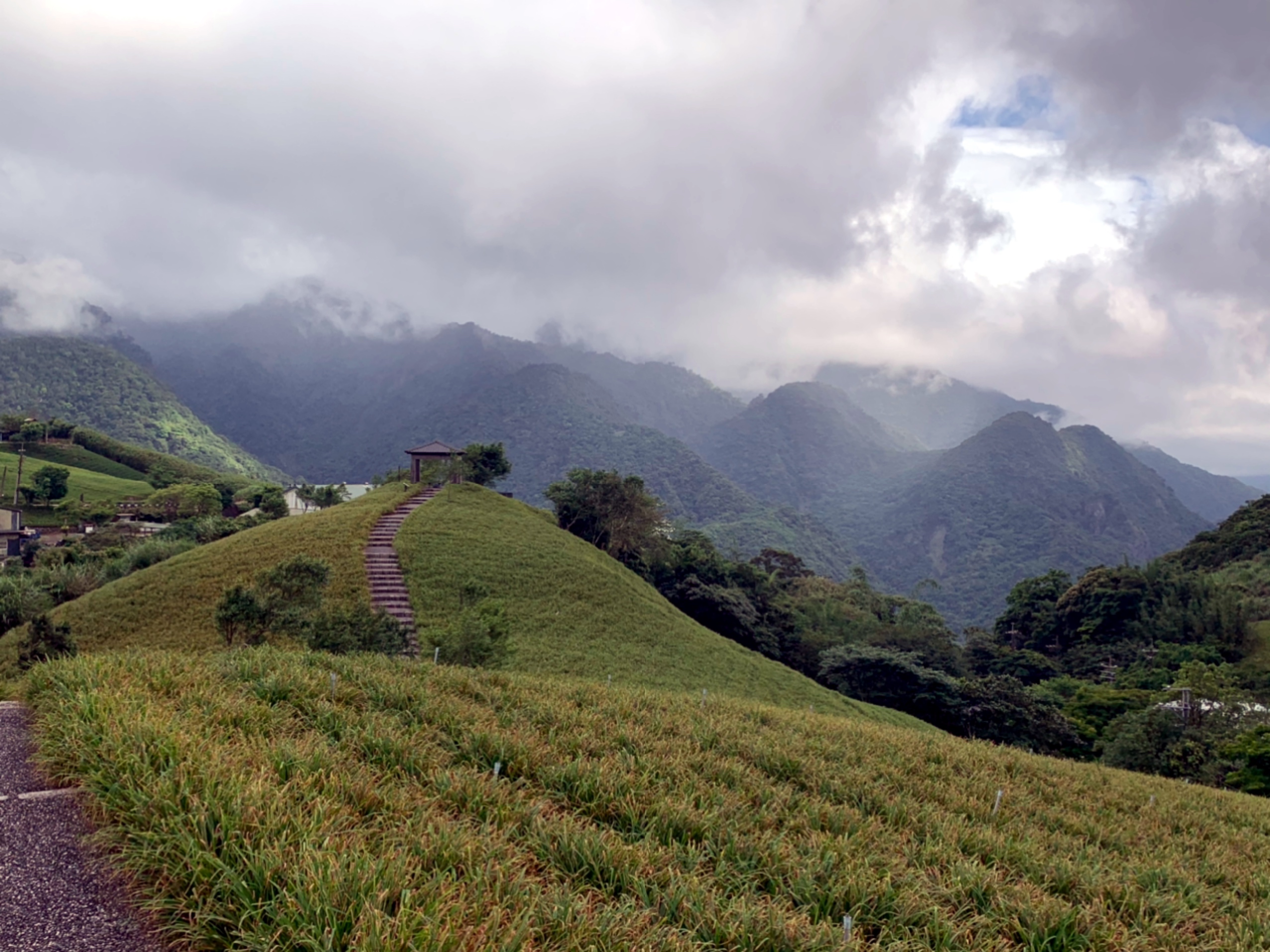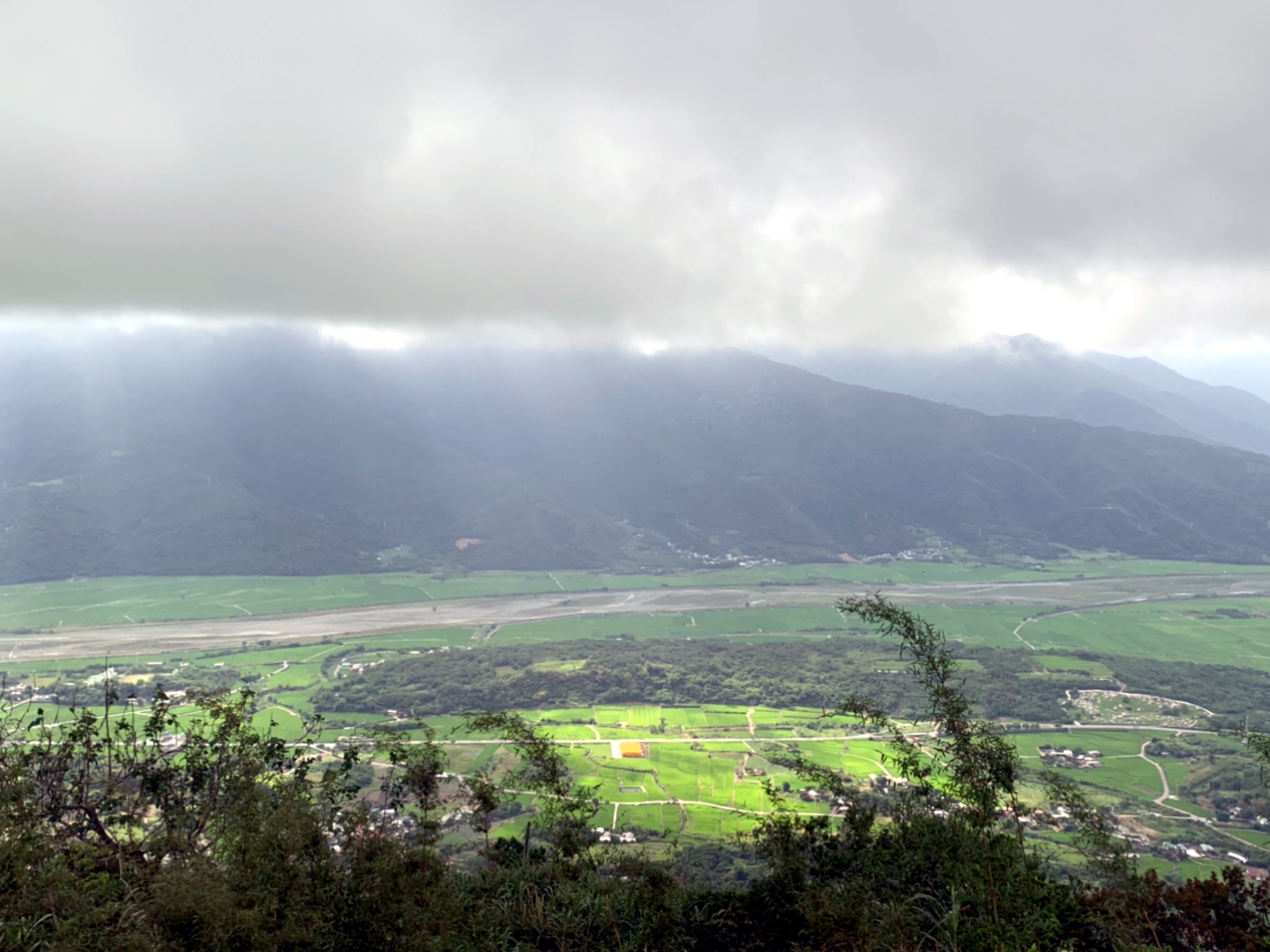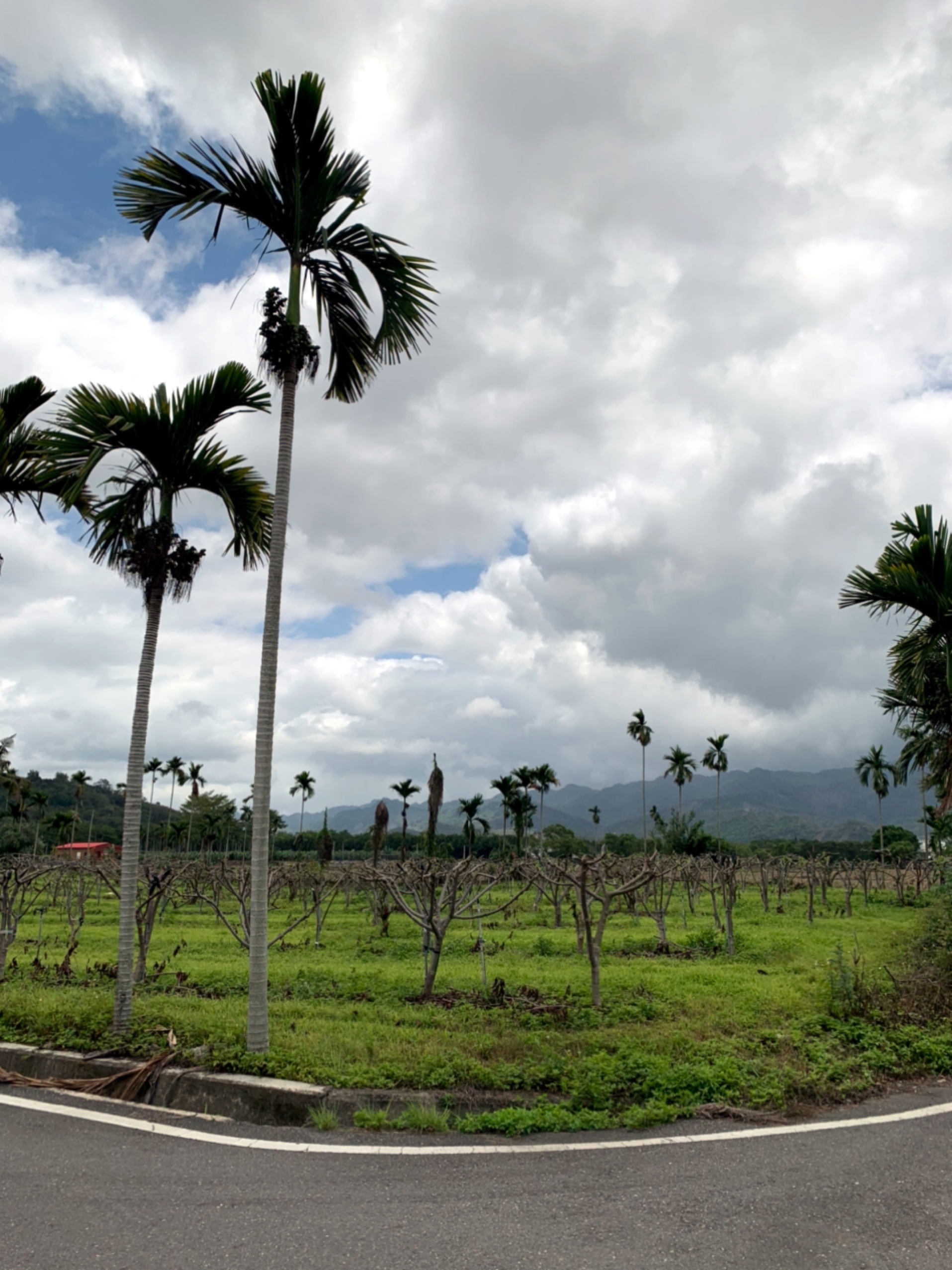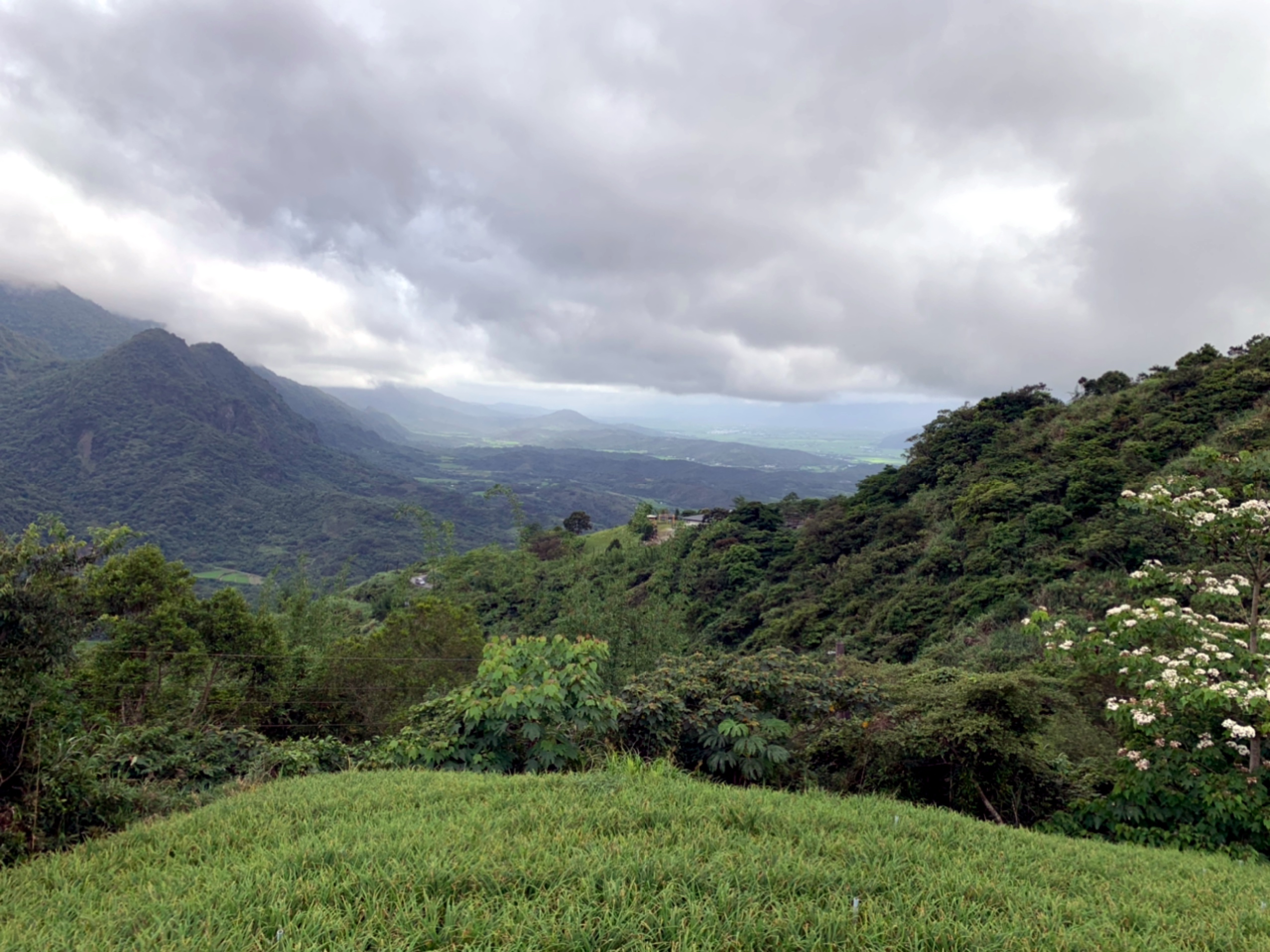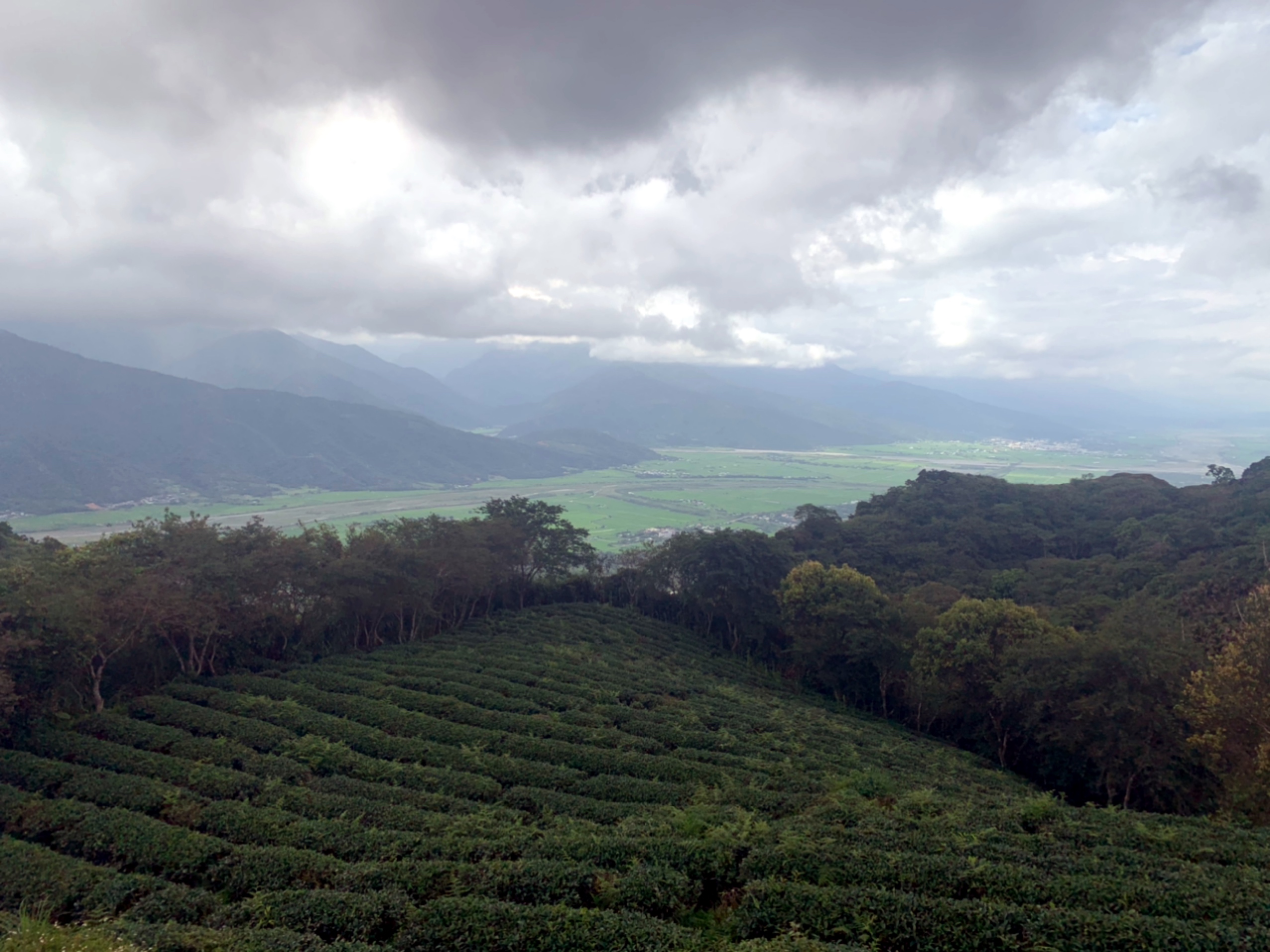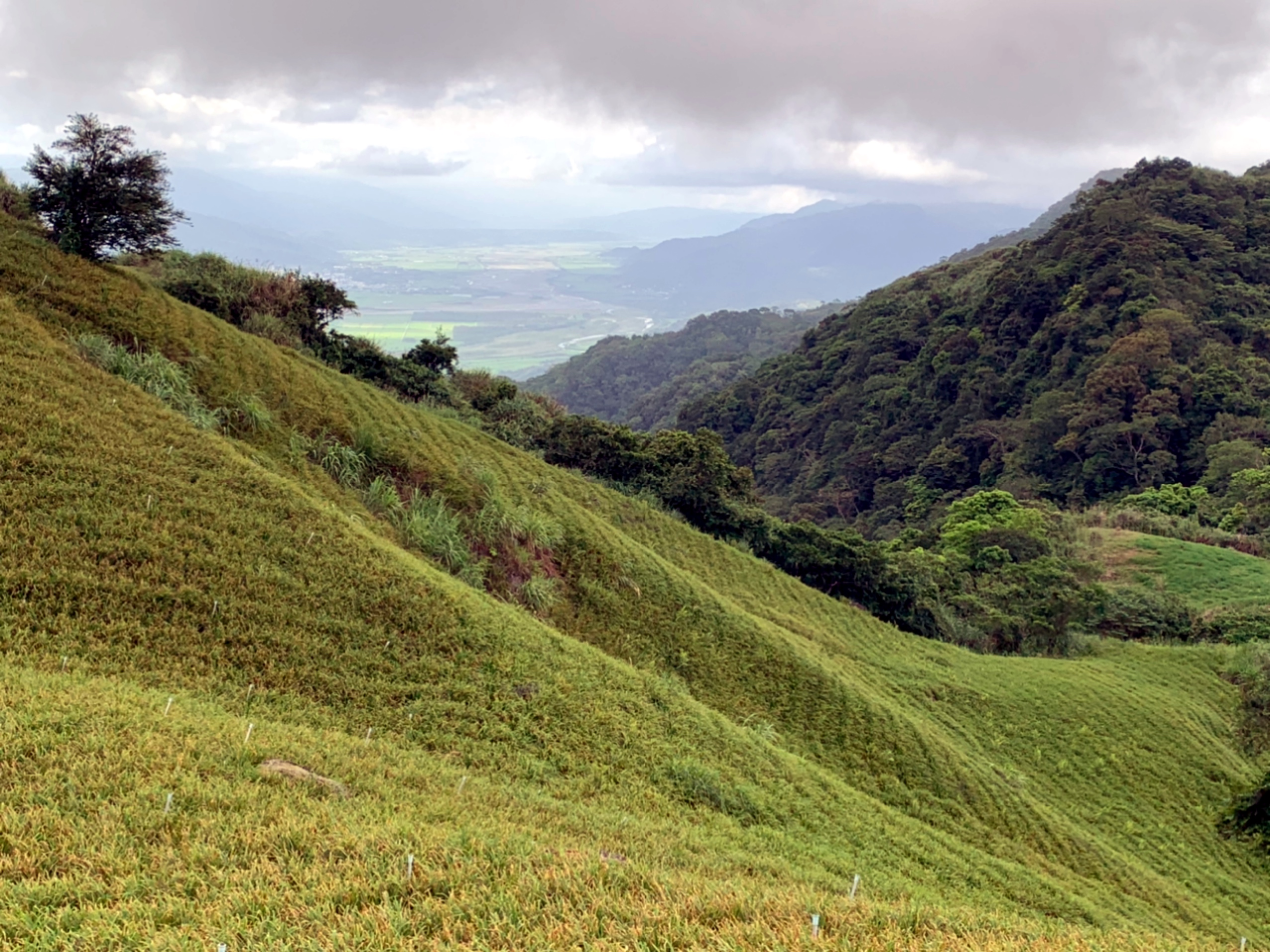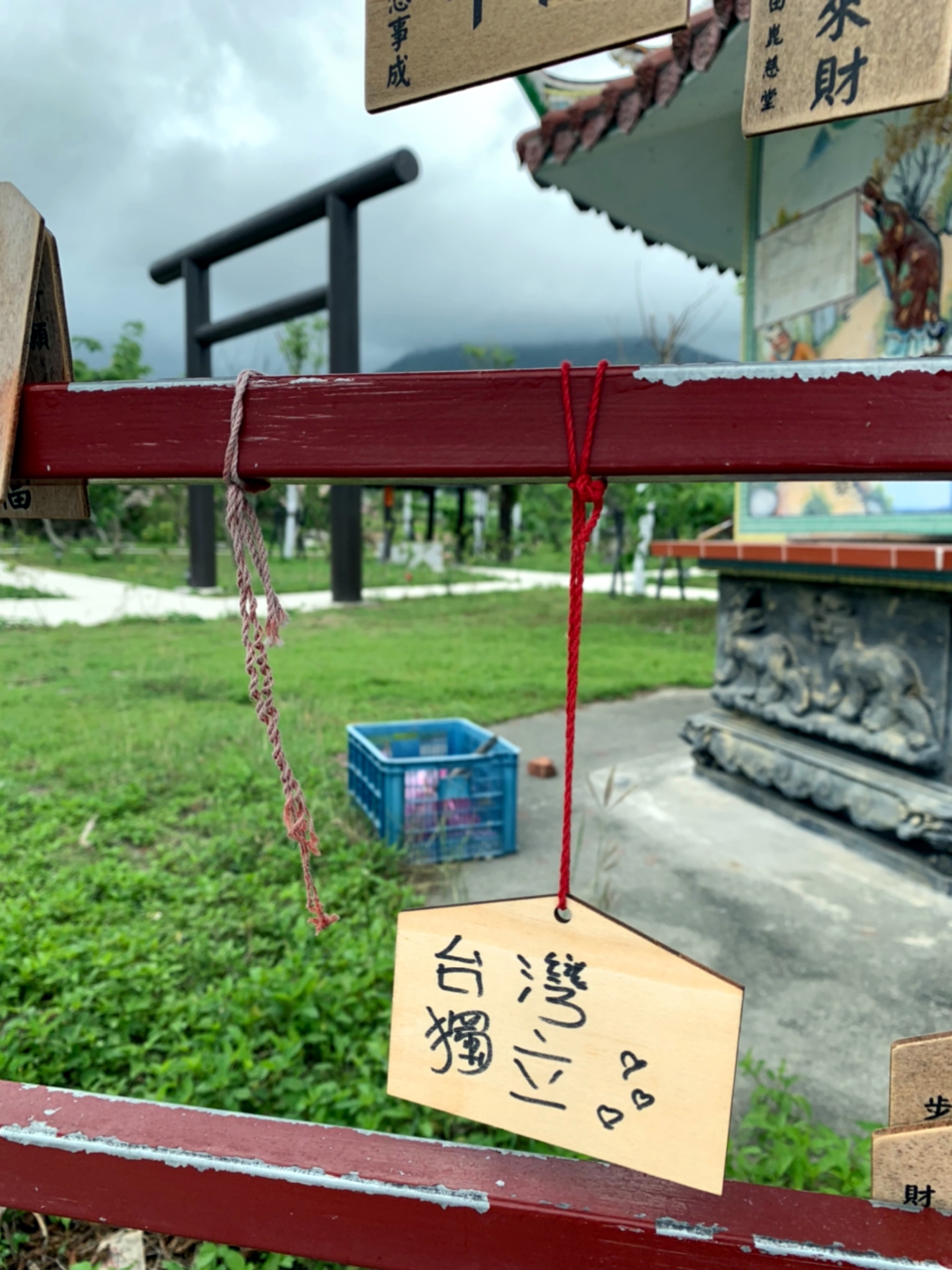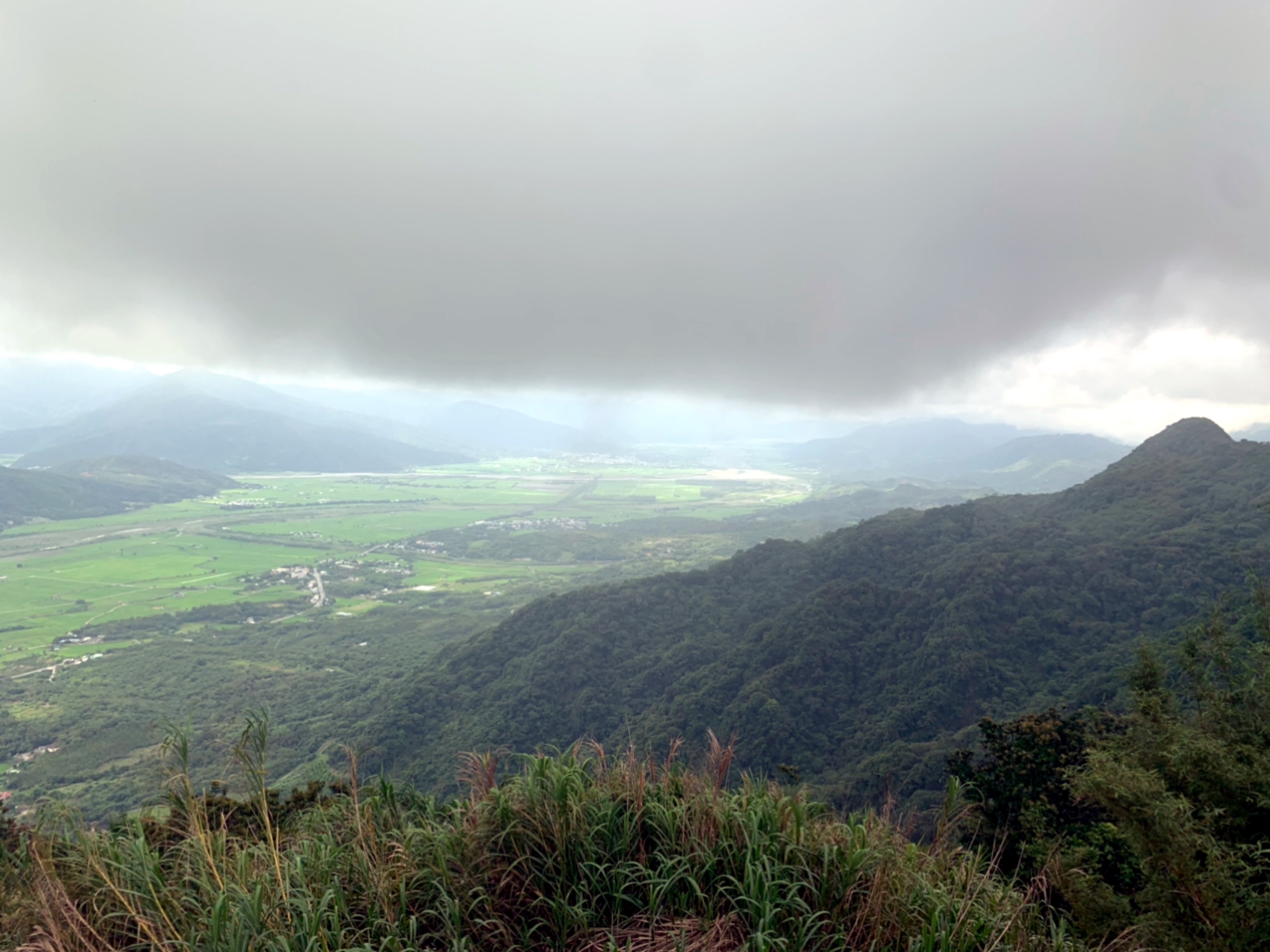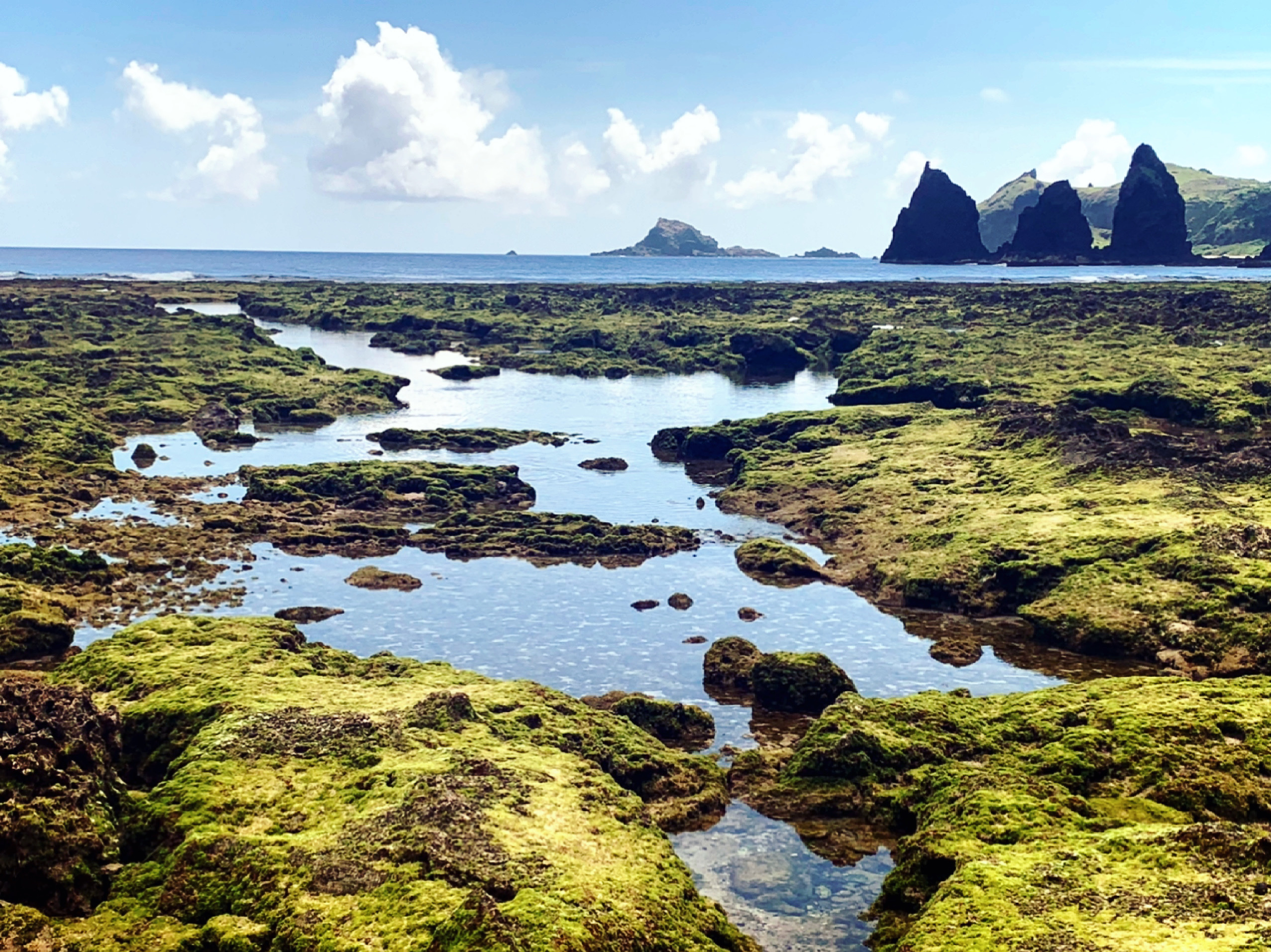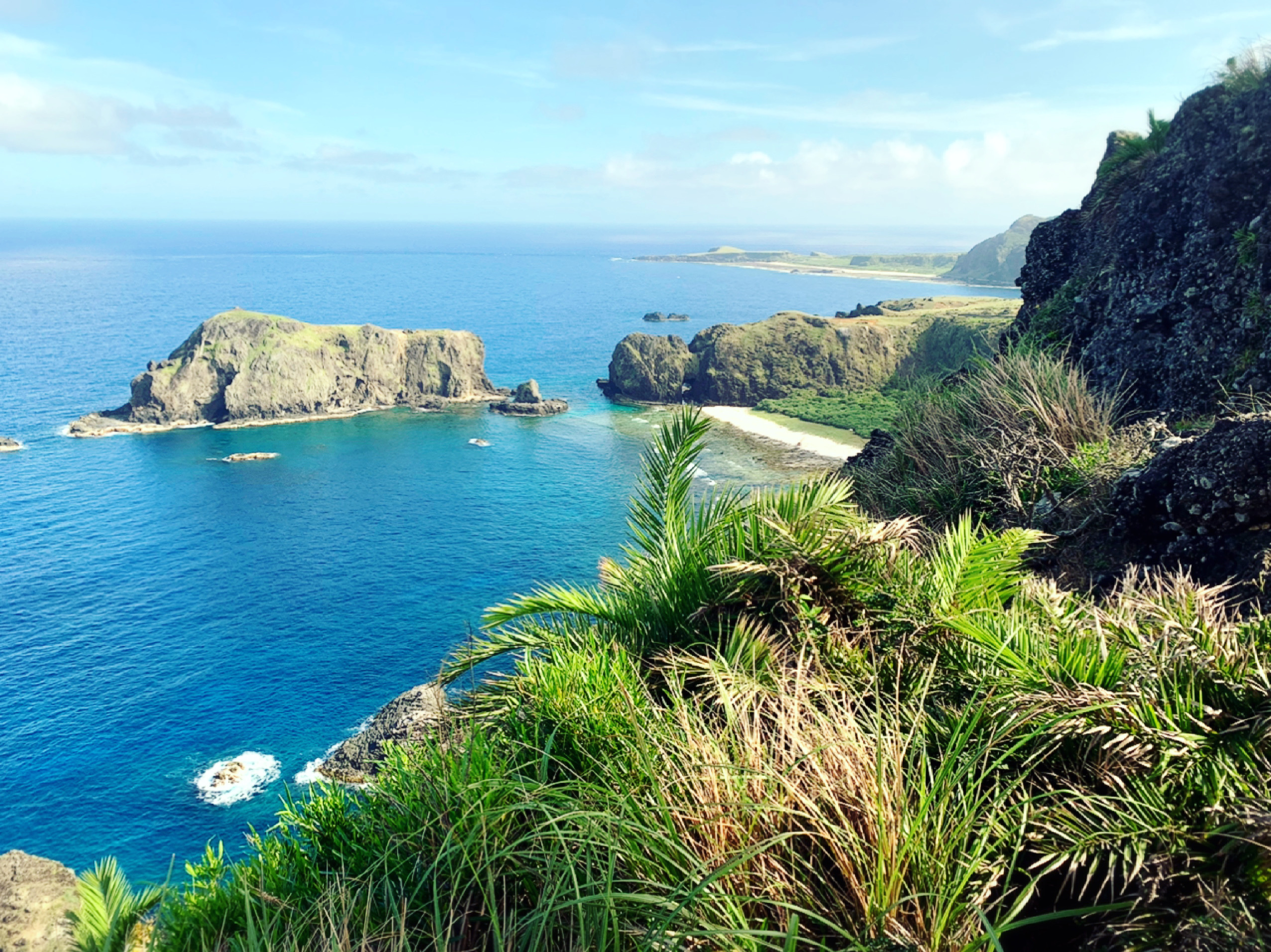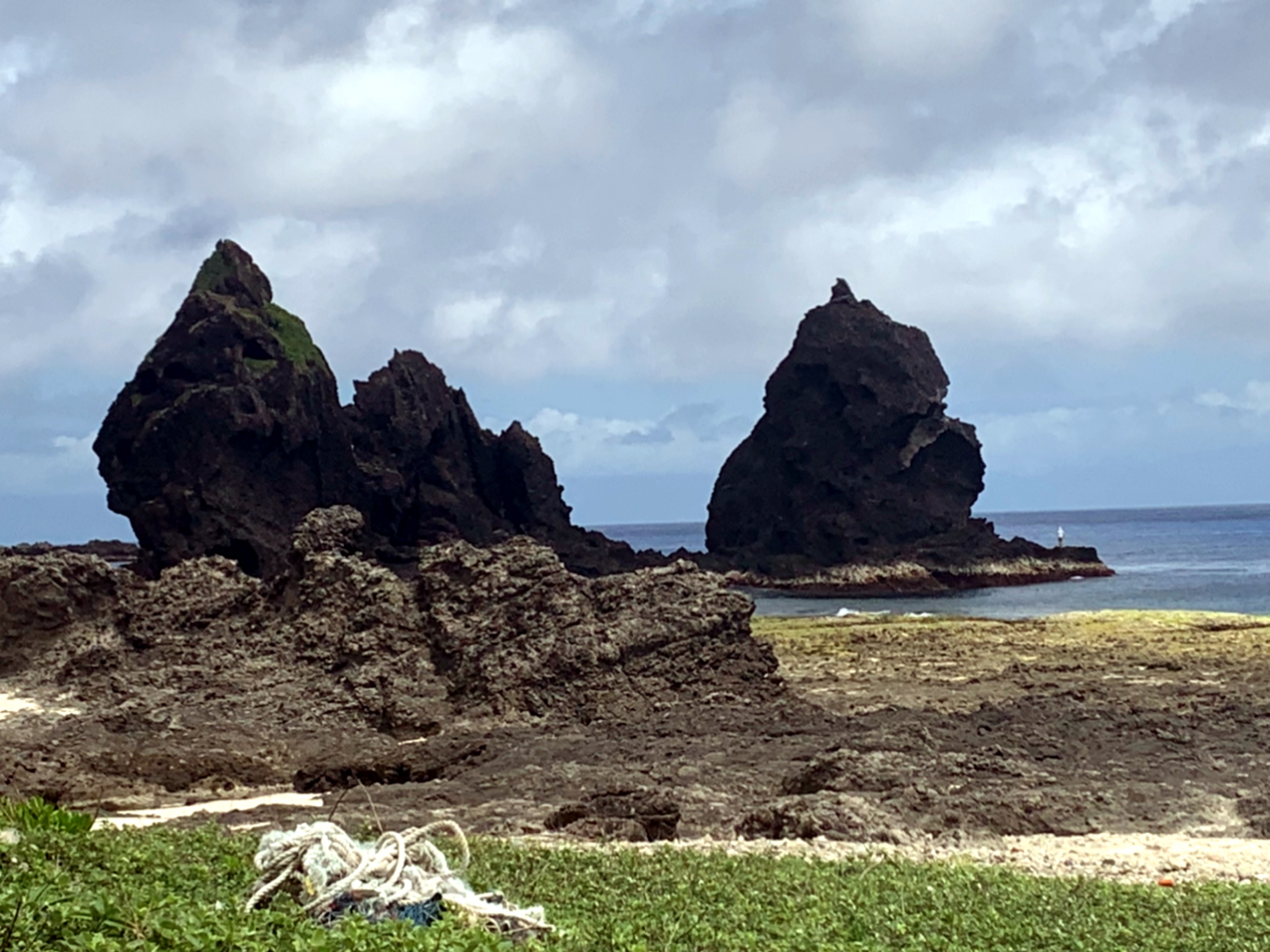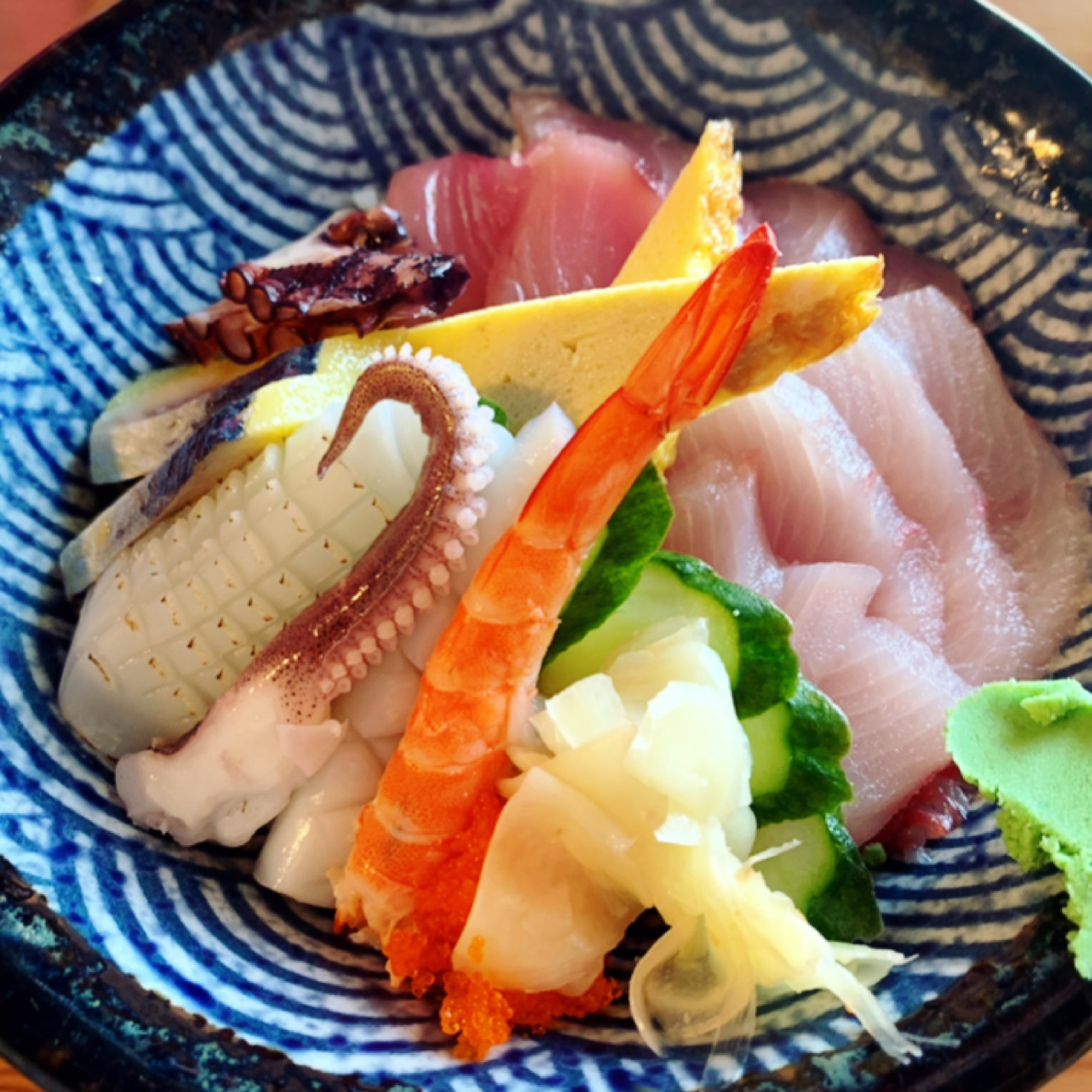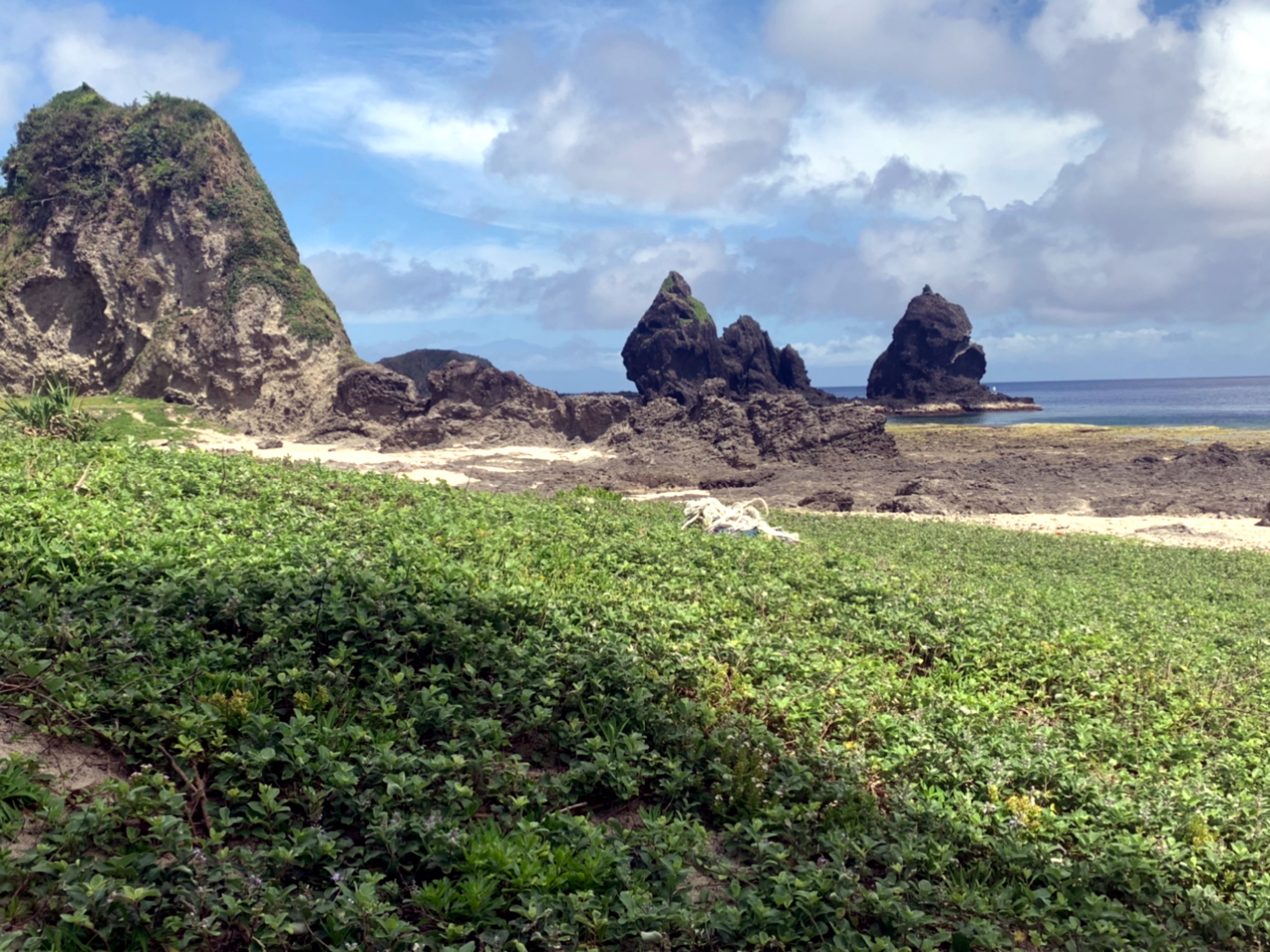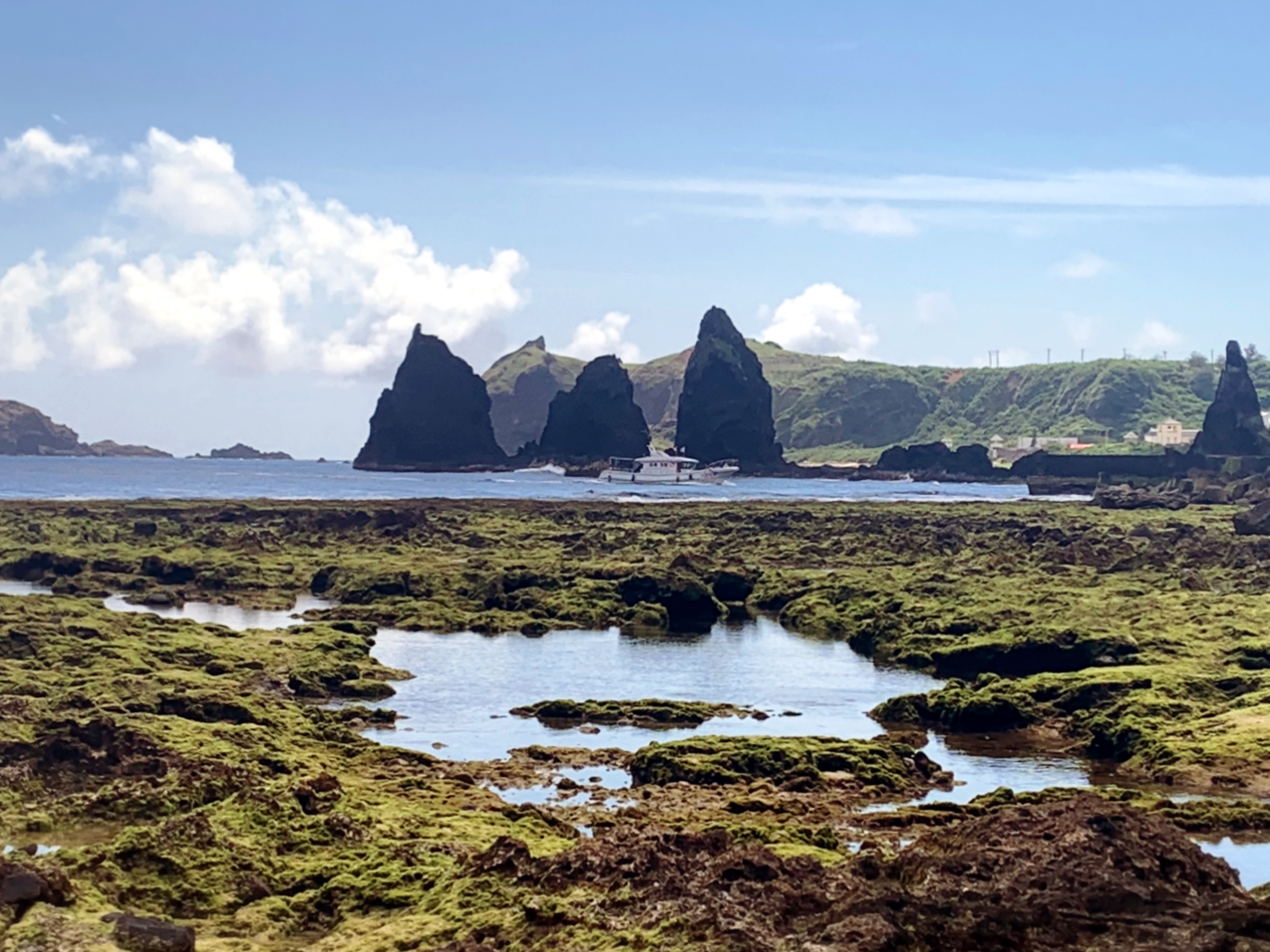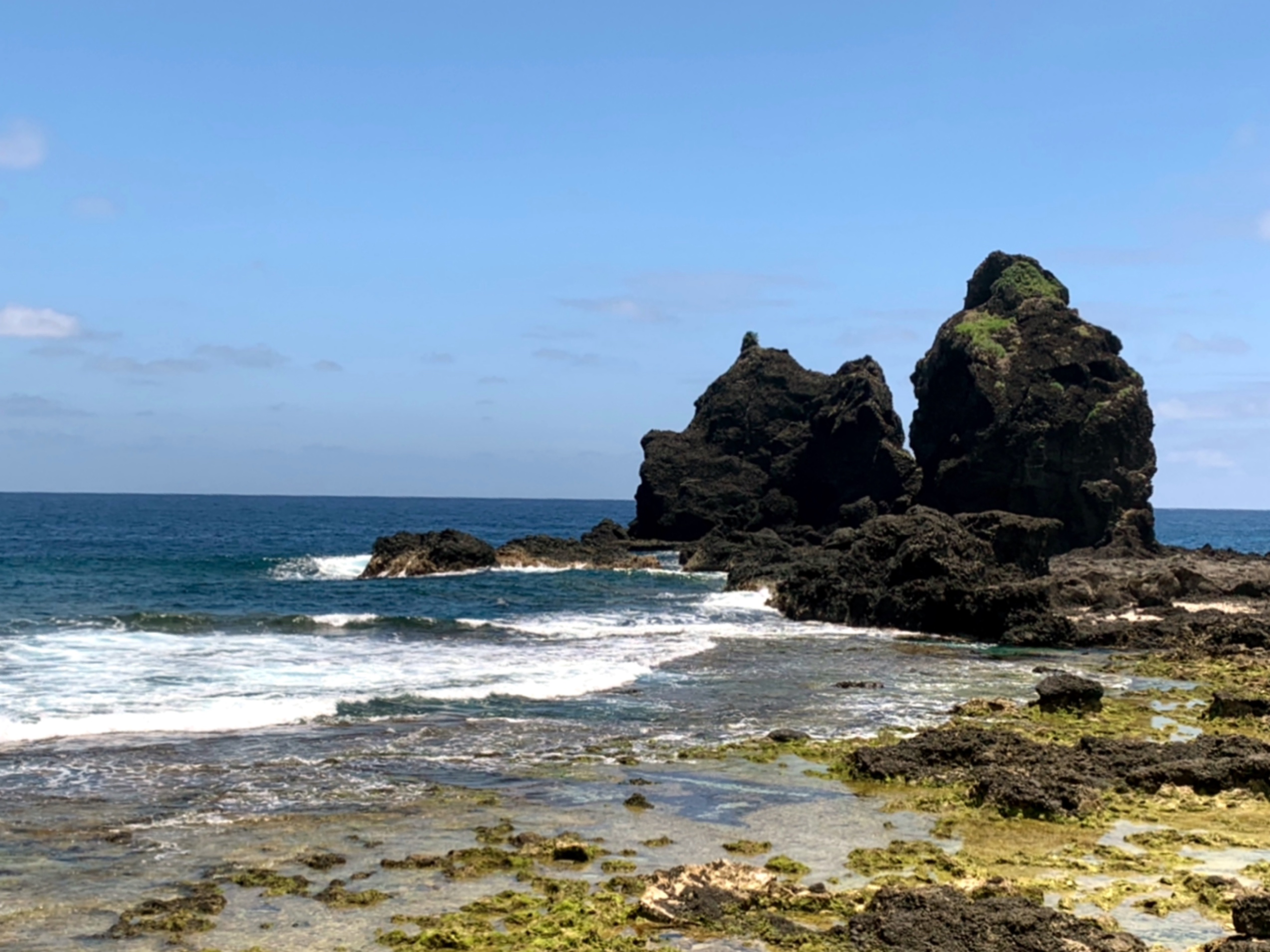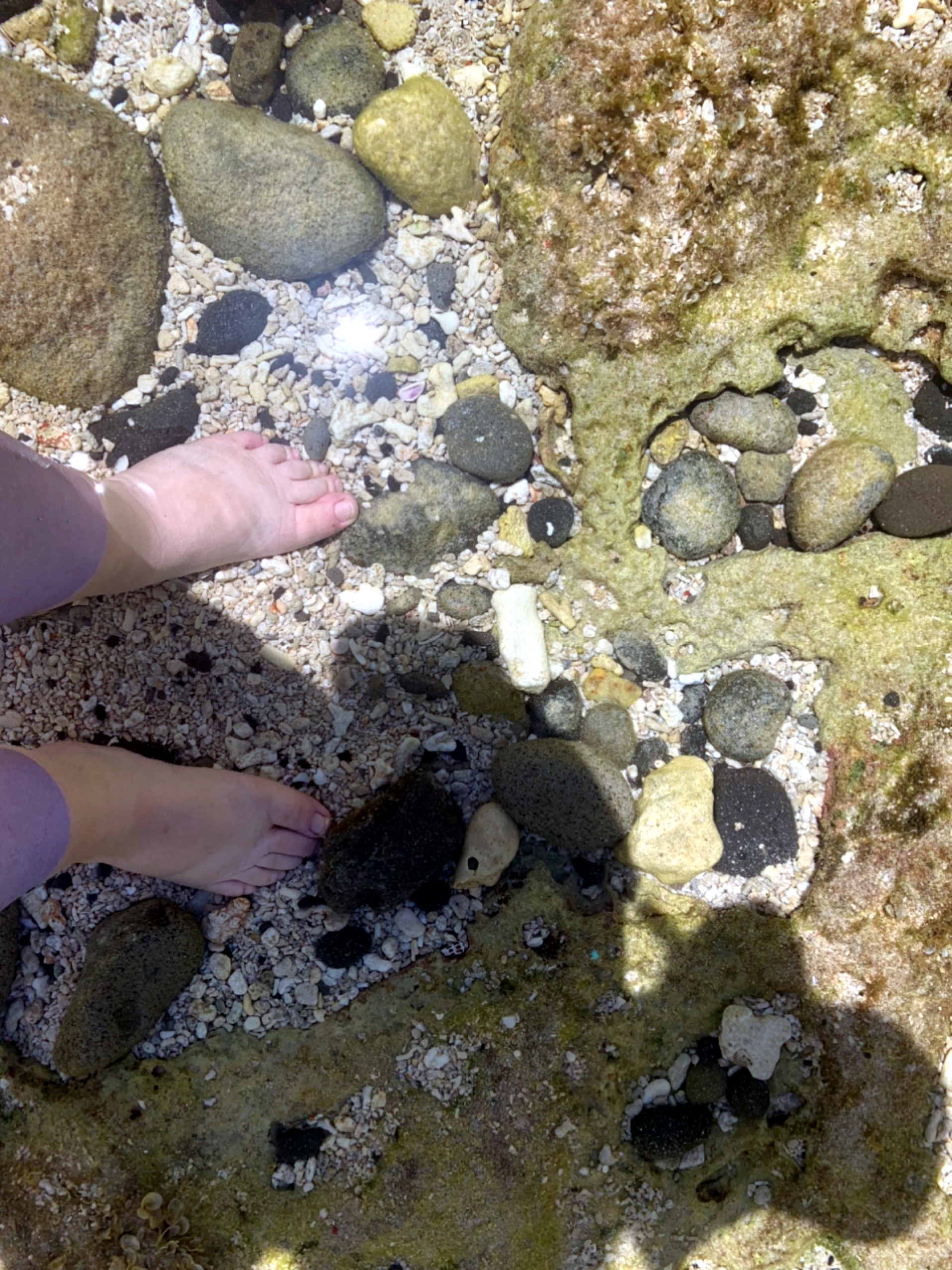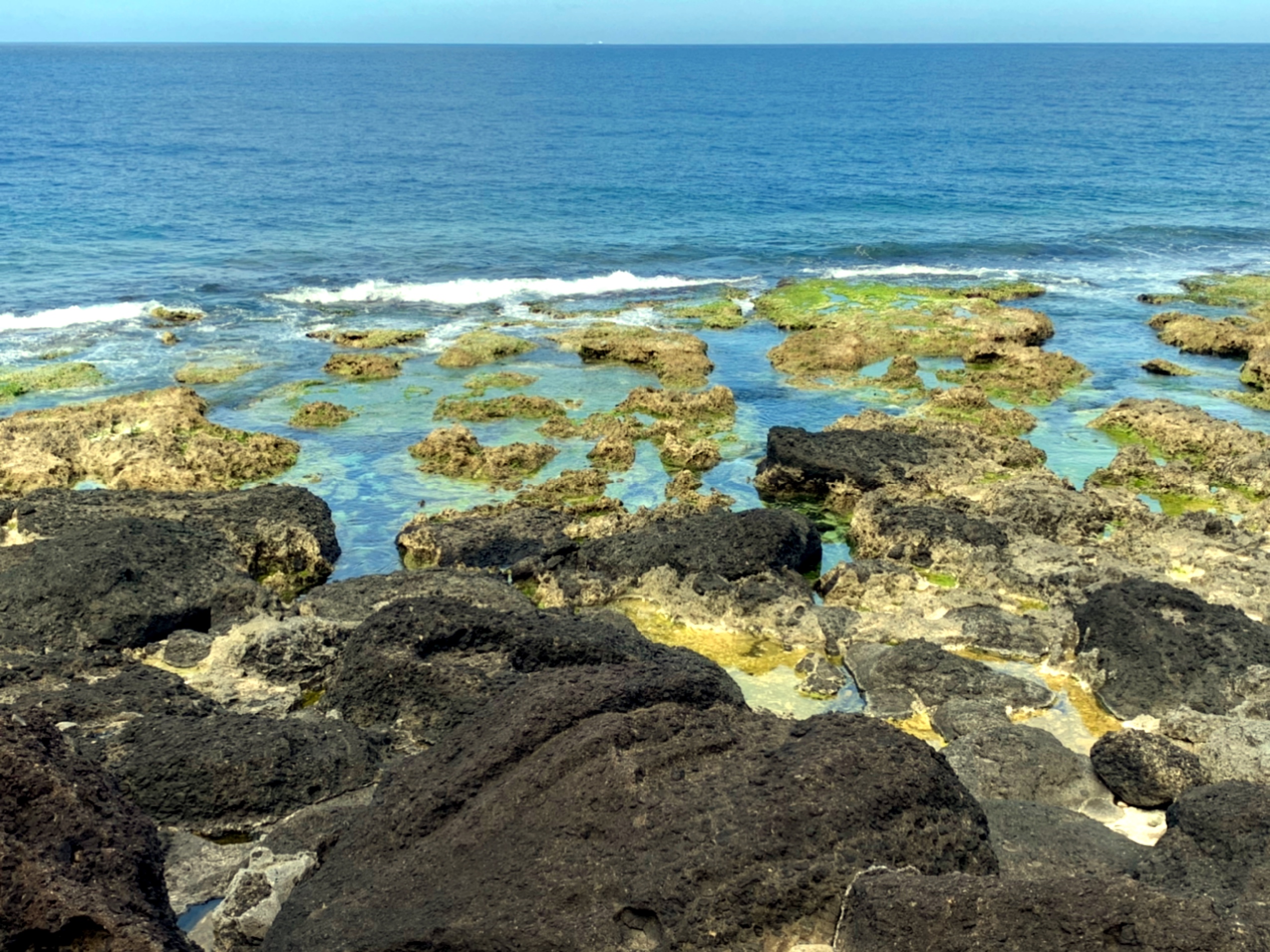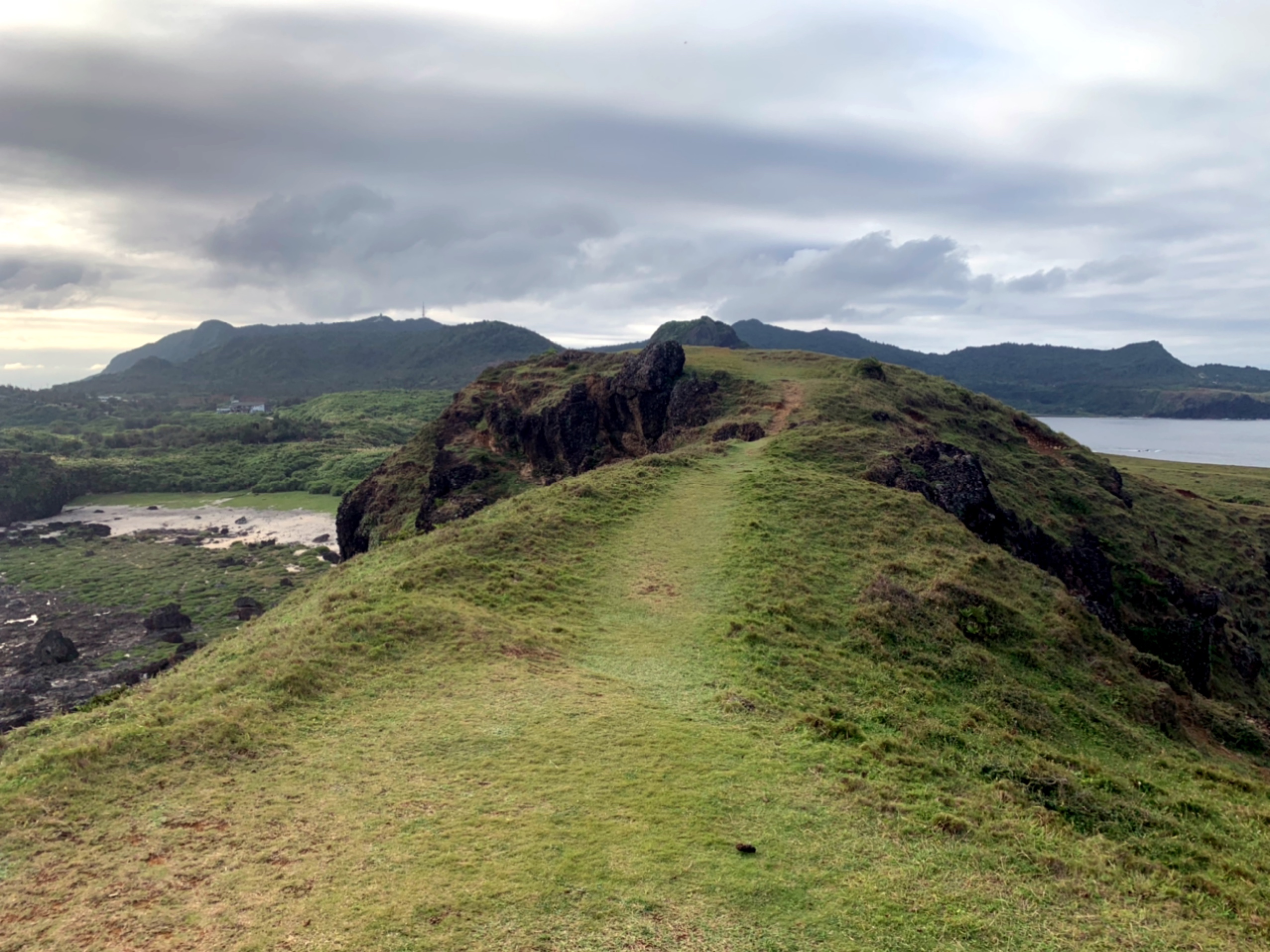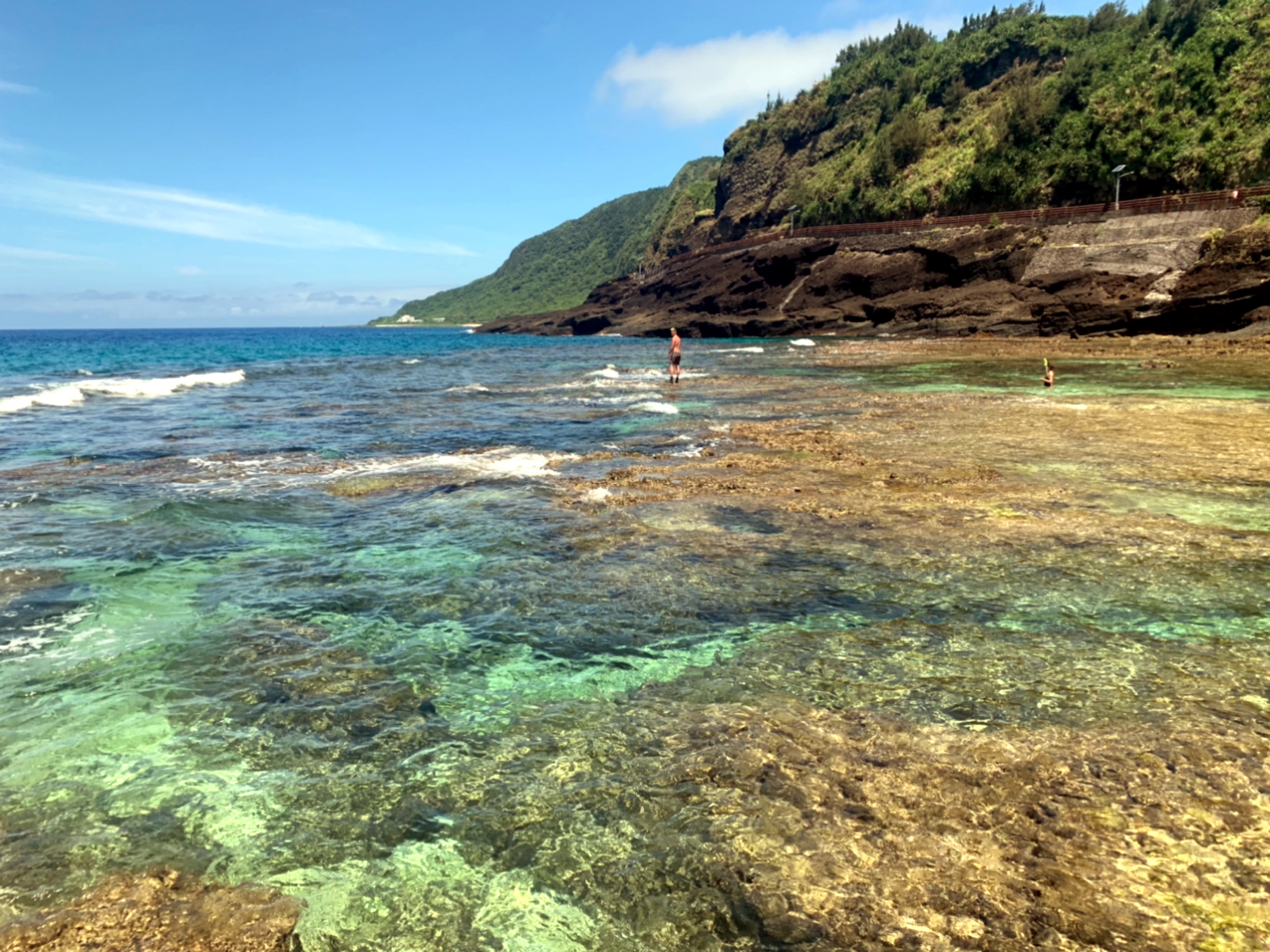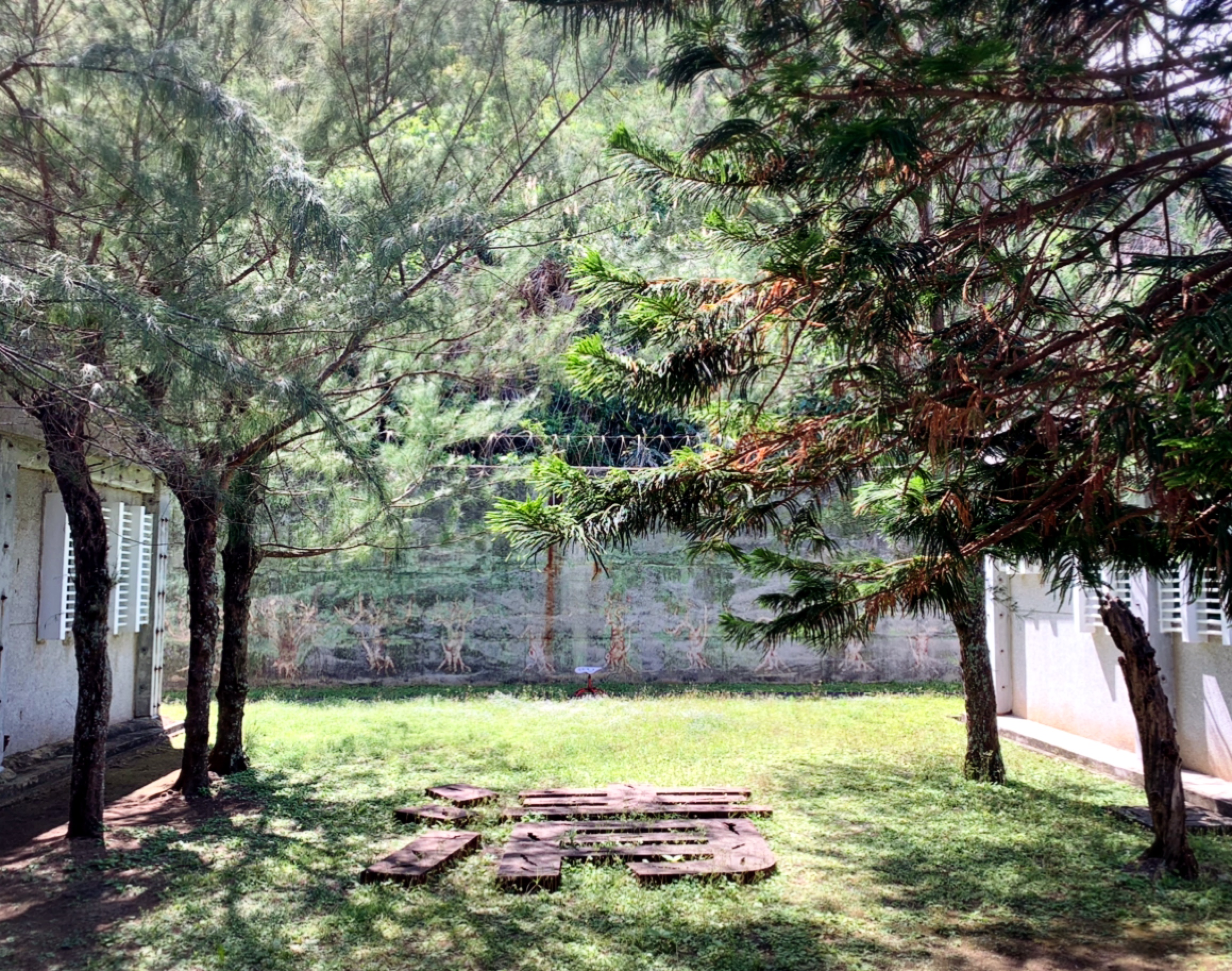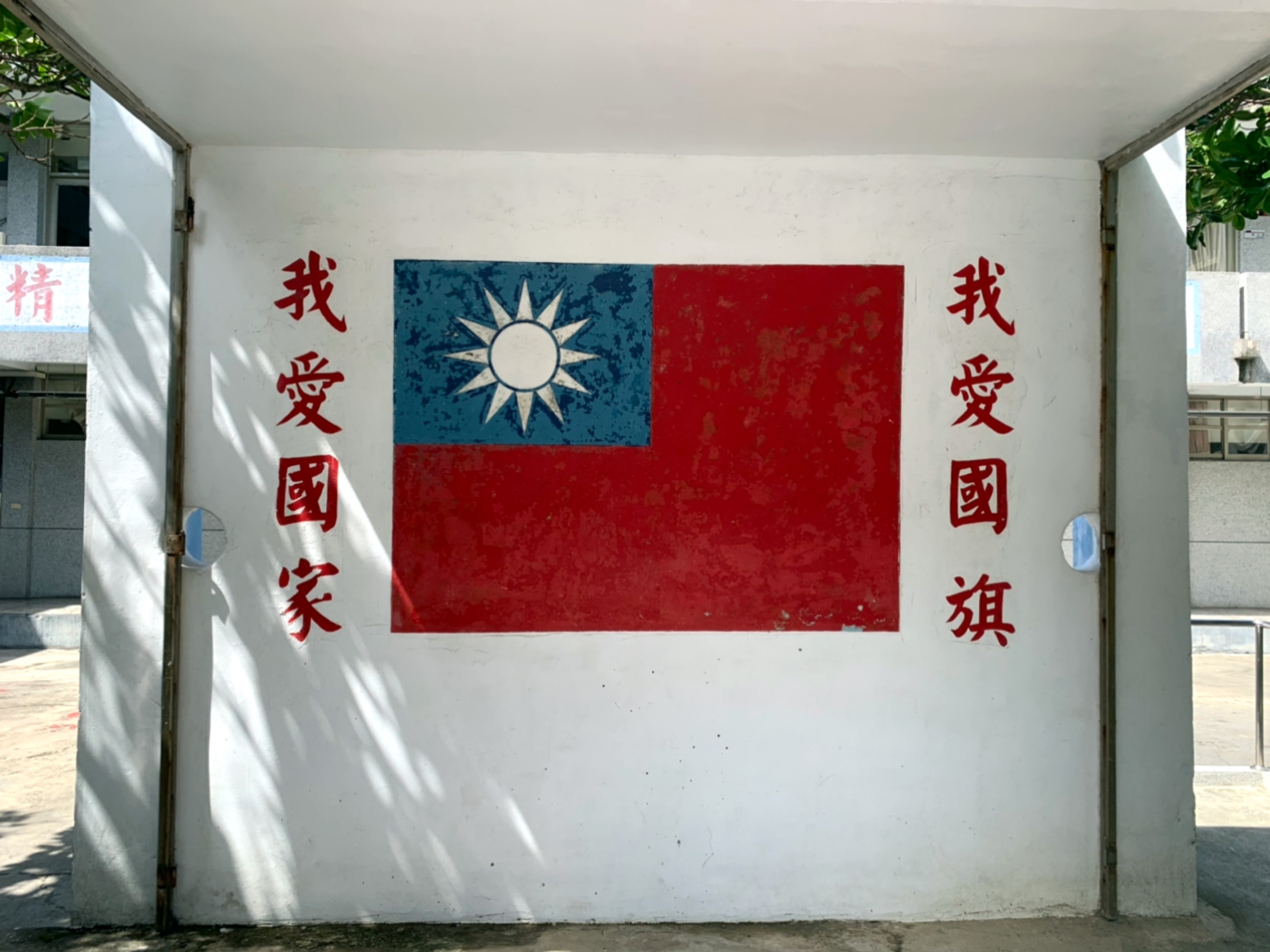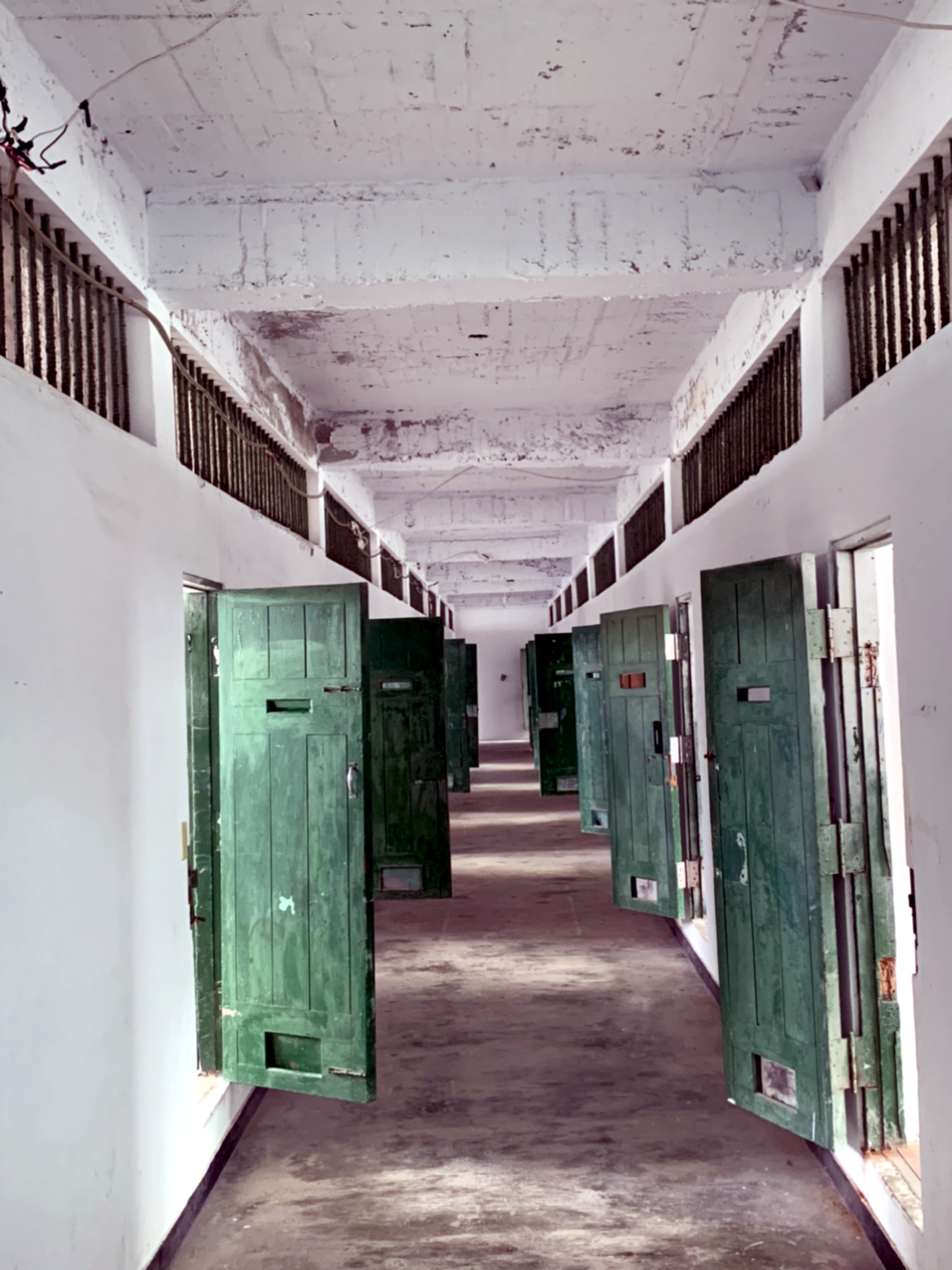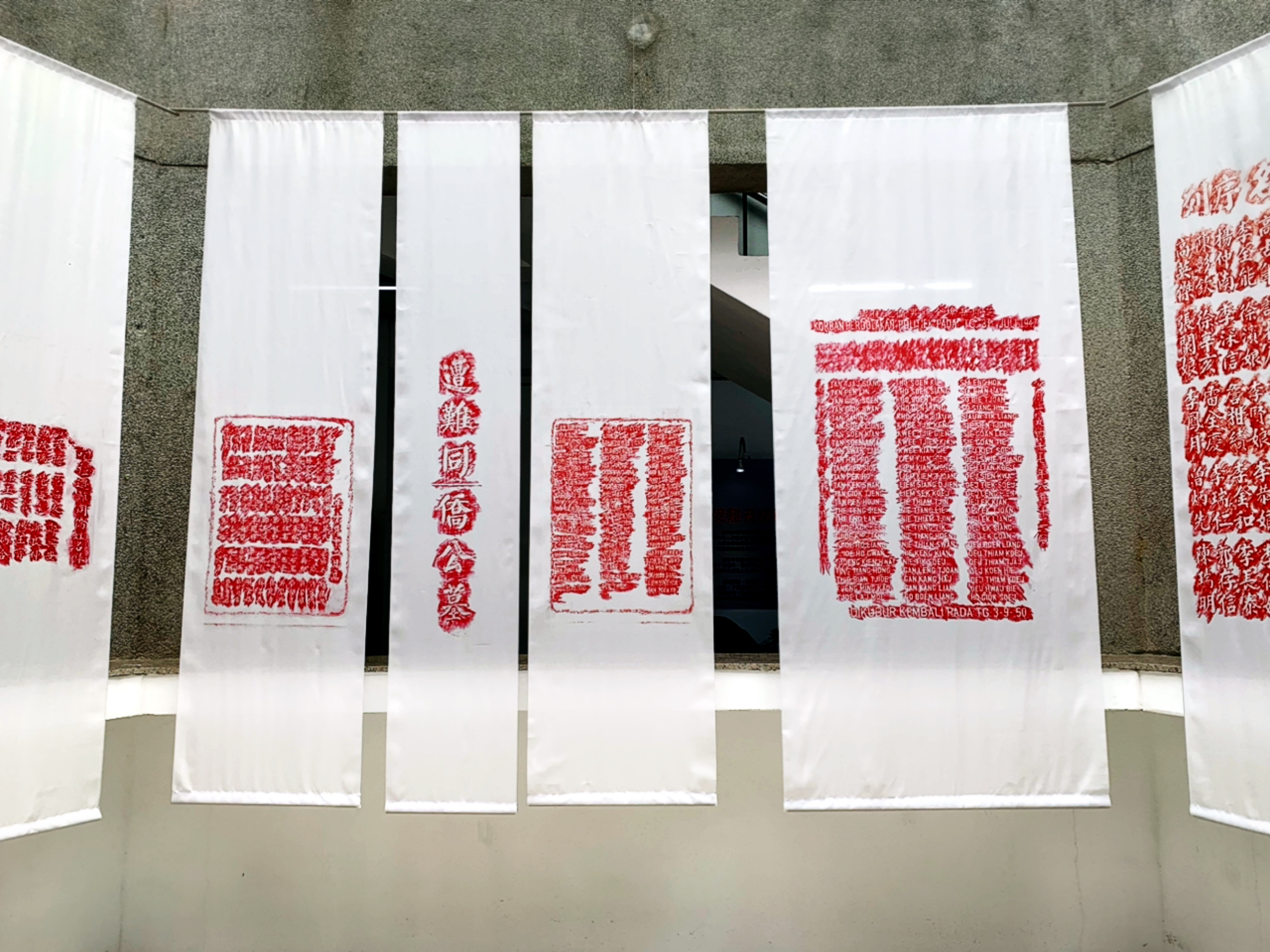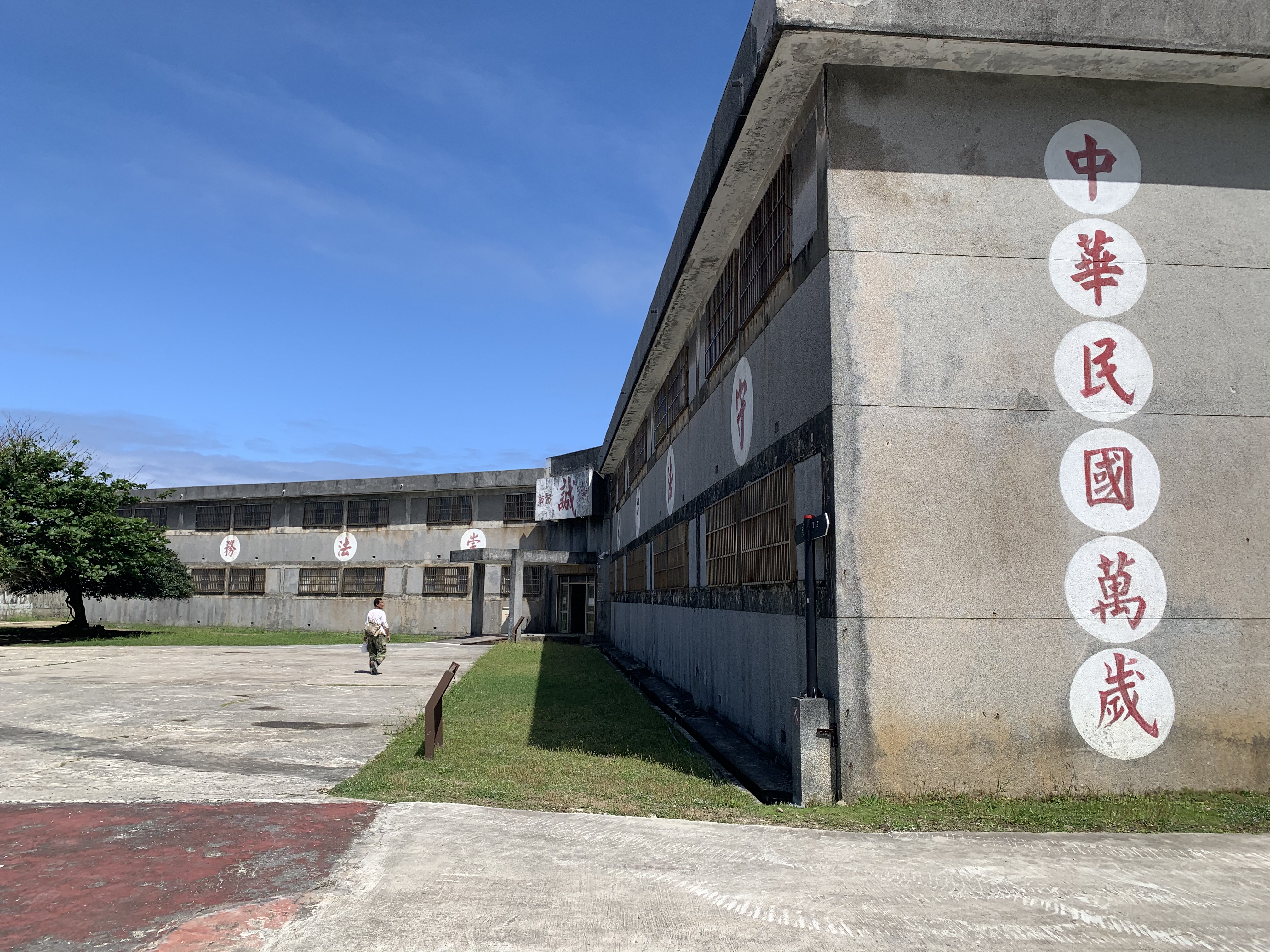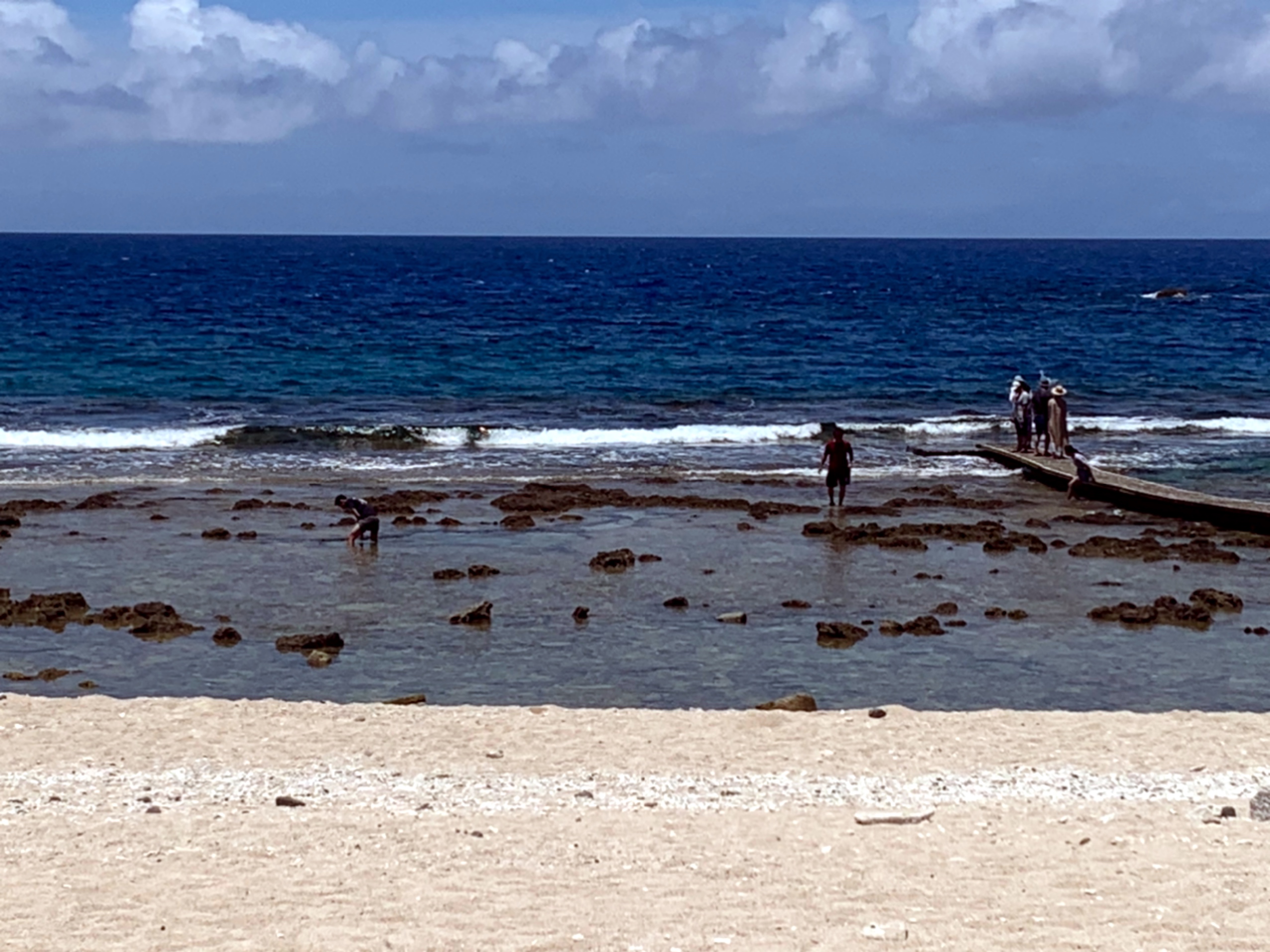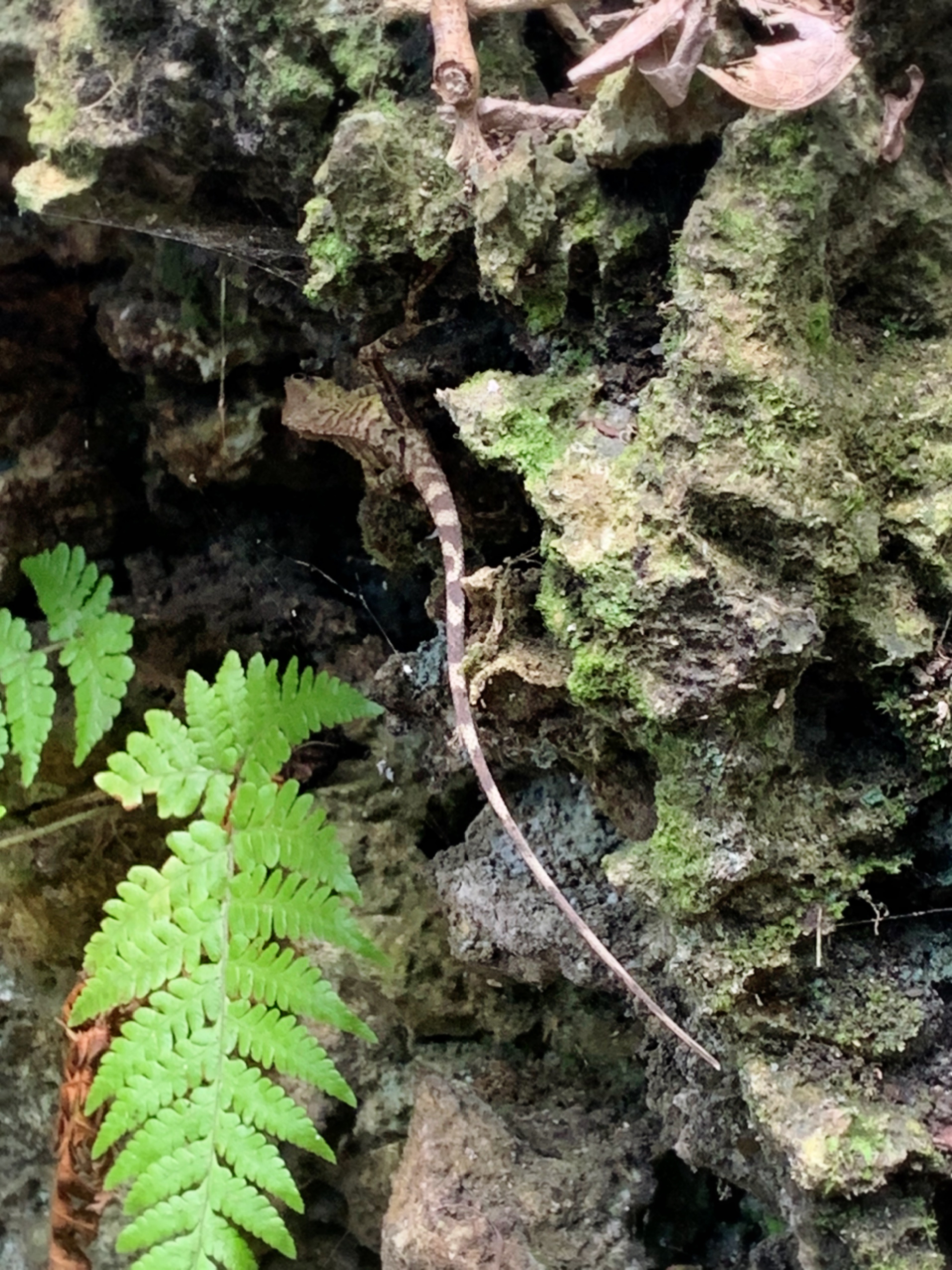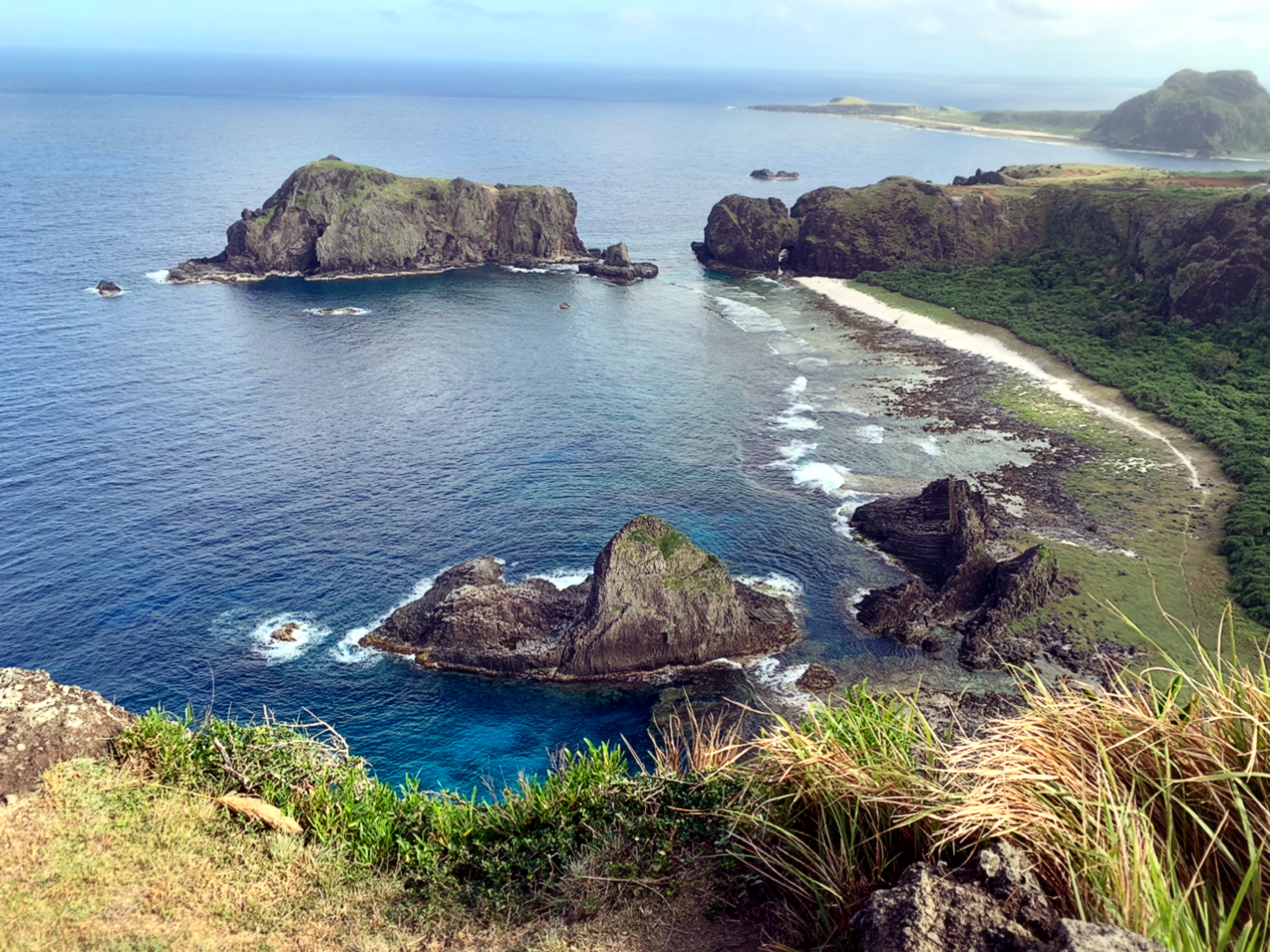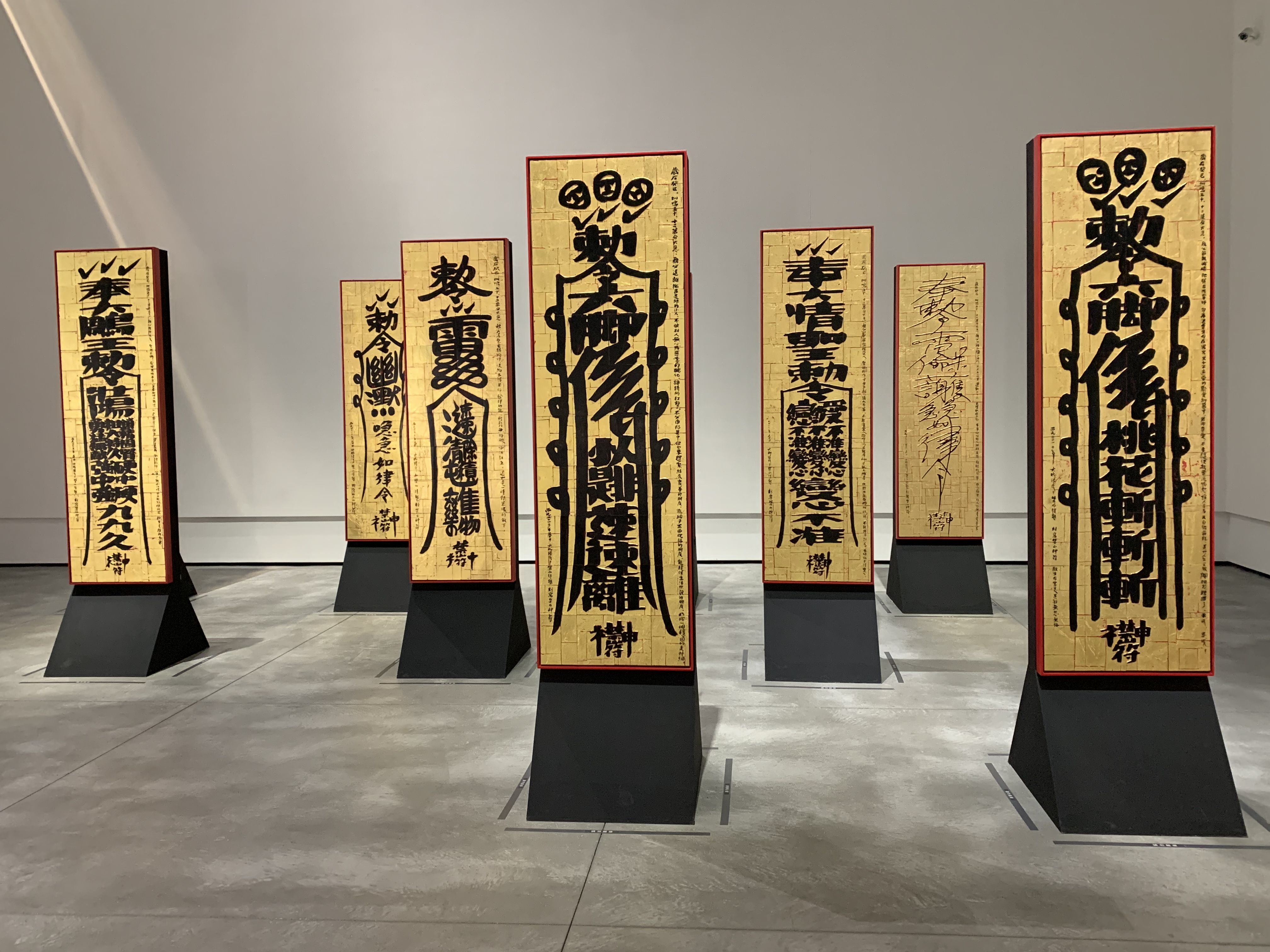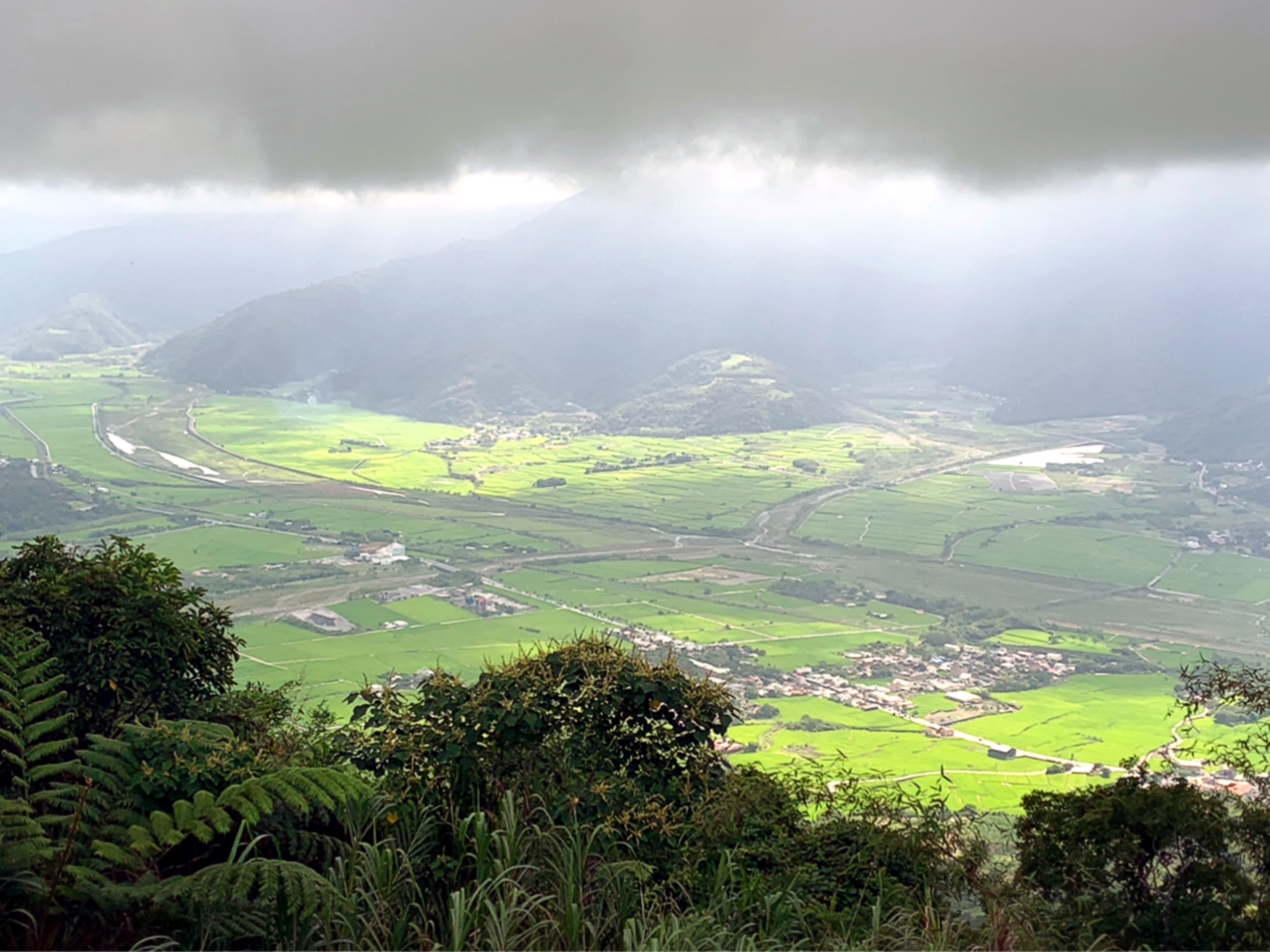
As I've said before, when I do travel posts I try to focus on some specific thing of interest rather than just publish an itinerary. Most recently, I focused simply on how much the KMT sucks in relation to a trip to Green Island. That's relevant to this post: that trip was the second half of this one.
This time, I want to talk a little bit about food.
I noticed when looking for places to eat in the East Rift Valley that some of my friends knew a lot of great spots, and others none at all except perhaps that famous railway bento at Chihshang -- which I've still never tried. Most food recommendations seem to be for the northern end of the valley, closer to Hualien, not the southern bits.
The Hualien side also seems to be where most of the well-known Indigenous cuisine is. As you head south, the Hakka cultural influence becomes stronger, which is reflected in the large number of Hakka restaurants. (The other side of the mountains, where the coastal road runs, seems to have been overrun from Donghe to Dulan with foreigners, so that's where you should head if you want Western food).
So, I thought it would be useful to talk about our driving trip through the southern reaches of the valley mostly through the lens of places to eat. Sadly, I did not actually take any food photos so you'll just have to settle for scenery.
We started our trip at Taitung Station, which is fronted by pretty good ice cream and tea shops selling locally-inspired products such as red oolong and hibiscus teas and custard apple ice cream. We used Avis/Budget through the KKDay app to book a rental car and drove to Luye (鹿野), about 30 minutes to the north.
In theory most of this trip -- minus Liushidan Mountain -- would be doable without a car. There's a train line running through the valley with local stops all the way up, it's a popular cycling route (and some of the more tourist-oriented towns offer bicycle rental) and there are public buses, though they don't seem very frequent. You'd have to be prepared to walk a lot. I recommend a car, but you don't need one unless you want to go up into the hills. Even the Luye Highlands are accessible by bus and tourist shuttle.
We'd been to the famous highlands of Luye before and didn't feel a need to return, but I'd booked us a few nights at the Luminous Hot Spring Resort & Spa. The hotel itself was nice -- I appreciated the balcony and in-room hot spring bath with mountain views -- though parts of the architecture were reminiscent of a public school. If you intend to forgo a rental car and just take the shuttle there and back, you'll be stuck paying resort prices for everything. We picked up breakfast for the next day at Family Mart, but we were fine with paying for one dinner at the extensive buffet. I was surprised with the quality of the sashimi; Brendan spoke highly of the braised pork rice.
On our other night in Luye, we went to Ai Jiao Yi Dim Sum 愛嬌姨茶餐廳, which isn't actually dim sum at all. This friendly local restaurant serves tea-infused dishes (usually as part of a set menu but there's an affordable option for two people). I loved everything from the simple mountain greens braised in tea to the fried tofu with tea-infused dipping sauce.
On the Monday evening when we ate there it wasn't crowded, but I do recommend calling ahead on weekends or during the high season.
Ai Jiao Yi also grows their own tea, and you'll likely be invited to sit and try a few kinds if they're not busy. We came away with a packet of honey-scented oolong (蜜香烏龍).
Our plan gave us one day in the East Rift Valley, and having driven around that area before, we weren't sure what precisely we wanted to do. After a leisurely coffee-drinking session our balcony, I suggested we check out the Japanese shrine in the lower part of town and then pick a spot for lunch that would require us to take a scenic drive. The shrine, by the way, is lovely -- it was built for the residents of what was at one point a Japanese village and has been restored -- and the fields surrounding it are pleasant to walk around. There isn't a lot of traffic on these village roads on a Tuesday morning in May.
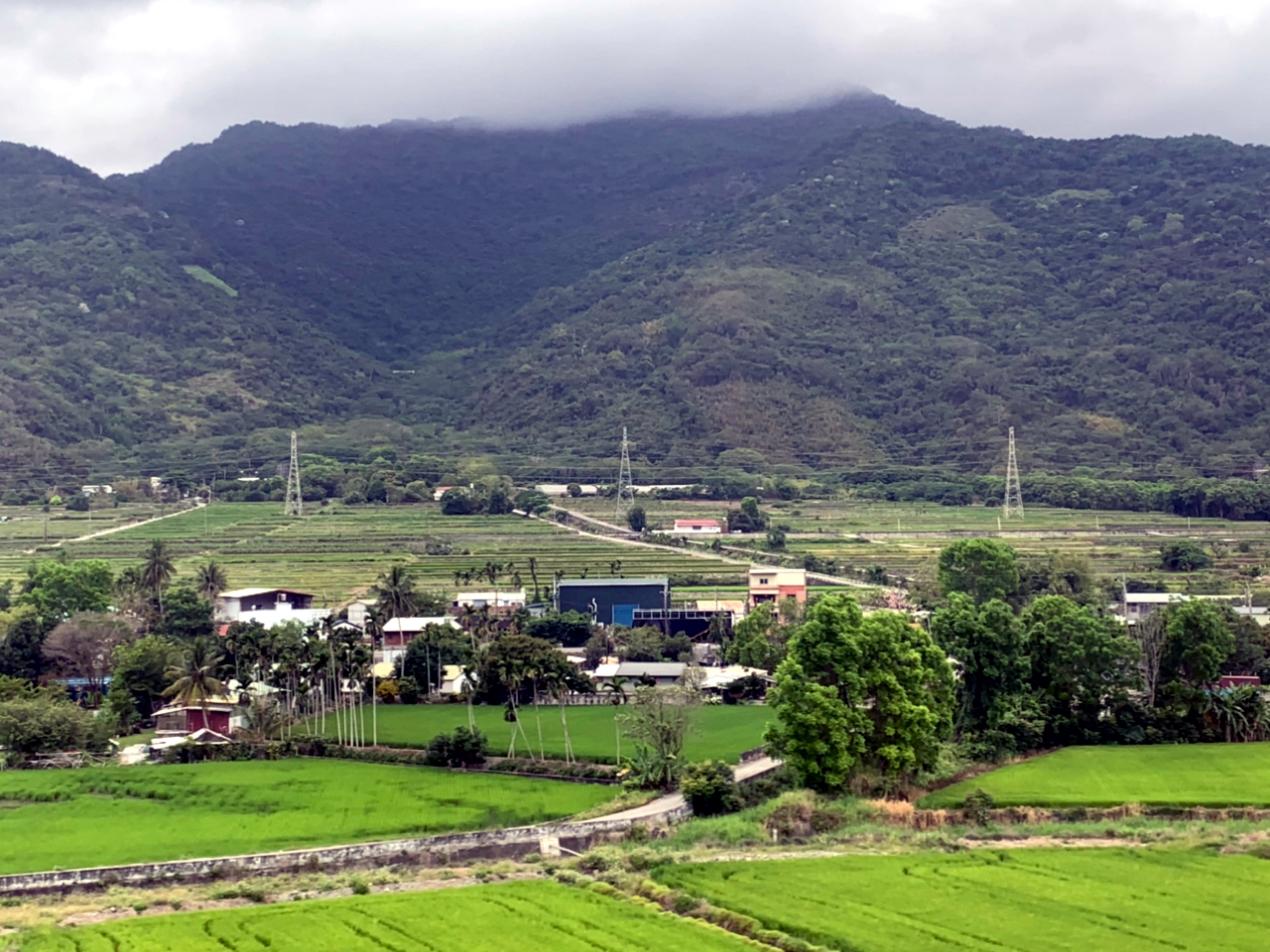


I considered trying to eat at Mipu Hakka 米舖客家小館, a Hakka restaurant we'd tried years ago in Guanshan. It was truly excellent and they make their own kumquat sauce. However, they're really set up for larger groups, and were gracious the last time we stopped there with just three diners, despite not really having a menu for such a small number. Tongxin Dumplings 同心餃子館 was also recommended by friends.
Instead, we ended up at G九屋特製私房菜 in Dongli, which I suppose could be translated as G9 House Special Private Kitchen (?) in Fuli. This brought us into the southern reaches of Hualien County on the valley side, but still a bit south of Ruisui, whose scenic roads I've been meaning to get back to for a nice drive-around.
One lovely part of getting up here were the opportunities to turn off Highway 9, which runs through the valley (and is barely a highway in some parts) and just meander through the countryside. A lot of people are nervous about driving on those tiny roads between fields as many don't seem like they can handle two-way traffic, but this is one of my favorite things to do. I'm scared of urban driving; even the dinkiest, most overgrown rural road is cake.
G9 is another truly excellent find. They too have set meals, there's no real menu. We were served cold crab and vegetable spring rolls in rice skin, an absolutely delicious dish of local greens with black tree ear mushroom and bacon, a unique dish of fish slices in steamed tofu served in a bright green sauce made from local vegetables, Thai-style fried chicken, and a simple but tasty soup. The rice comes with pork oil so you can make a Hakka-style 豬油拌飯.
Although it was still just a bit too far north for us, Our Cafe 我的咖啡館 in Guangfu (a bit north of Ruisui) comes highly recommended as well.
After our meal at G9, we finished off our tea and discussed what to do next. We weren't far from Chihshang, which offers both scenery of the East Rift Valley itself, but also a highway that crosses the mountains and drops you off at Donghe on the coastal side. It's famous for both scenery and having a troupe of Formosan macaques.
We did both on our last trip, however, and decided to beat the usual tourist crowds by driving up Liushidan Mountain 六十旦山 instead. This area is packed with sightseers when the famous tiger lilies are in bloom across the hillsides in August and September (a similar tiger lily mountain can be found near Taimali). In early May, just a few buds were beginning to show, but the scenery was still gorgeous and there was hardly another soul around. In my opinion, the perfect time to go.
The drive up to Liushidan Mountain from Dongli is somewhat terrifying, with more switchbacks than the drive down the other side at Dongzhu, but that's the sort of driving I'm actually good at and there was no traffic whatsoever, so I didn't mind. We stopped at as many beautiful lookout points as we could, watching low clouds and patches of sun wind their way down the valley below. In most cases, we were the only people there. The drive down was just as lovely, and we took our time as there was no one around.
(Downside: all the shops that seem like they're usually open in the tourist season and would typically have restrooms were shuttered, so I had to pee behind a bush.)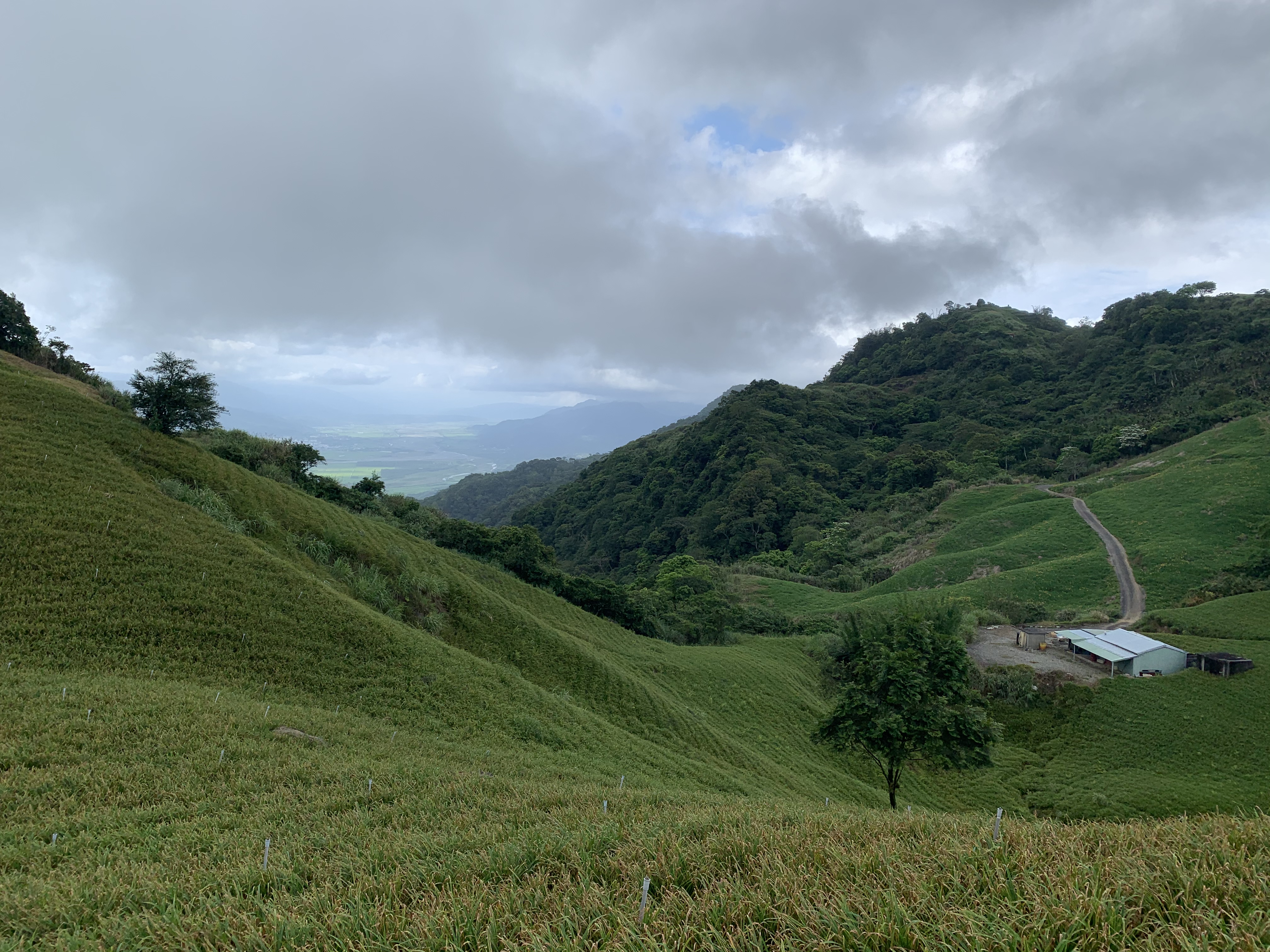


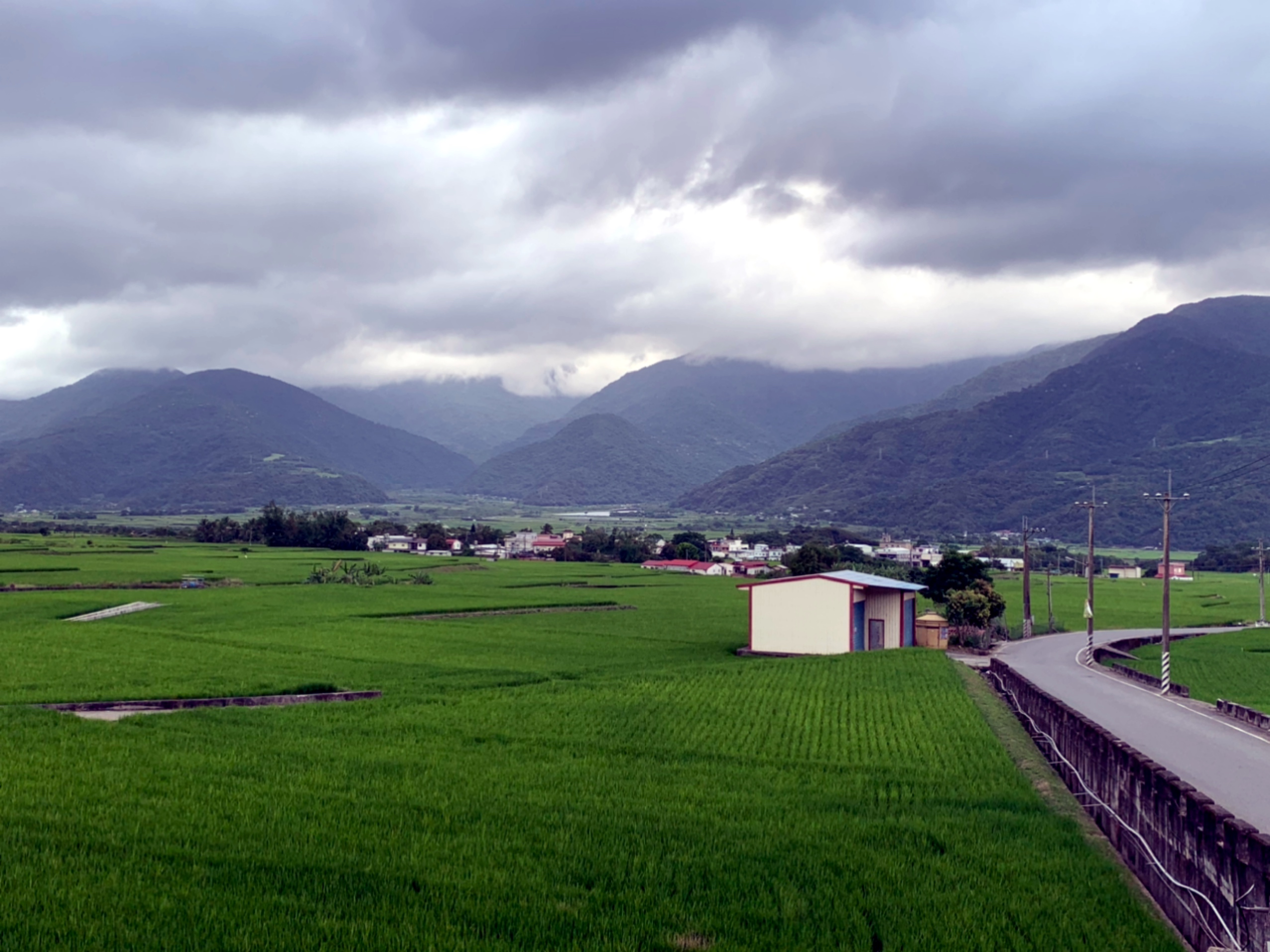
When we felt ready to head back into the valley, I suggested we look for a cafe with nice views to relax and recharge before heading back to the hotel. We found the perfect destination in No. 9 Gourmet Coffee 池上鄉九號咖啡館 in Chihshang. The massive windows offer a lovely vista of the fields and mountains, and the coffee, which comes with a small pudding-based dessert, is good too.
There's no parking to speak of, but in this part of Taiwan you can just sort of pull over.
My goal had been to take the scenic (as in, farms and fields) route back to the Luminous, but we lingered so long at No.9 that dusk began to set in and rain was coming, so we just drove directly back along the highway.
The next day we dropped off the car at Taitung Station and had a few hours before our flight to Green Island...or thought we did. With much of Taitung City's culinary scene closed during the exact post-lunch hours we needed to kill or off on Wednesdays, I searched for places that would welcome two people killing time (like a cafe) but also served food (like a restaurant) and found Taimali Culture and Creative Cafe 太麻里文創咖啡館.
Don't let the name fool you -- it's in downtown Taitung, not Taimali. The food is at the higher end of typical cafe fare, but it's in a restored wooden Japanese building with a beautiful inside-outside feel, and they have cats!
Of course, something had to go awry. Our flight to Green Island was canceled due to a sudden rainstorm and we had to spend the night in Taitung (we took the boat the next morning). I was in the mood for something in the general category of yakitori, so we ended up at Kasugabe Japanese Home Cooking 春日部日本家庭料理, in a lane which also boasts an interesting-looking Italian restaurant, a highly-rated super-modern Thai place, and a funky cafe that I would have happily checked out if we hadn't wanted to be in bed early.
Kasugabe was far better than its mediocre Google ranking. I was pleased with everything, though the spicy mentaiko cheese potato sticks in my memory as particularly great. I commented that they seemed to have laced it with pure unadulterated crack, and Brendan commented that it was probably just all the butter.
Although it's a little far away, Seasonal 漁采時令料理 is another friend-approved, highly-recommended Japanese restaurant, but it was a bit too far from our hotel and we had already turned in the car.
The bad weather had cleared by next morning we were finally able to head to Green Island, so that was the end of our East Rift Valley adventure!
Please enjoy some more photos:

